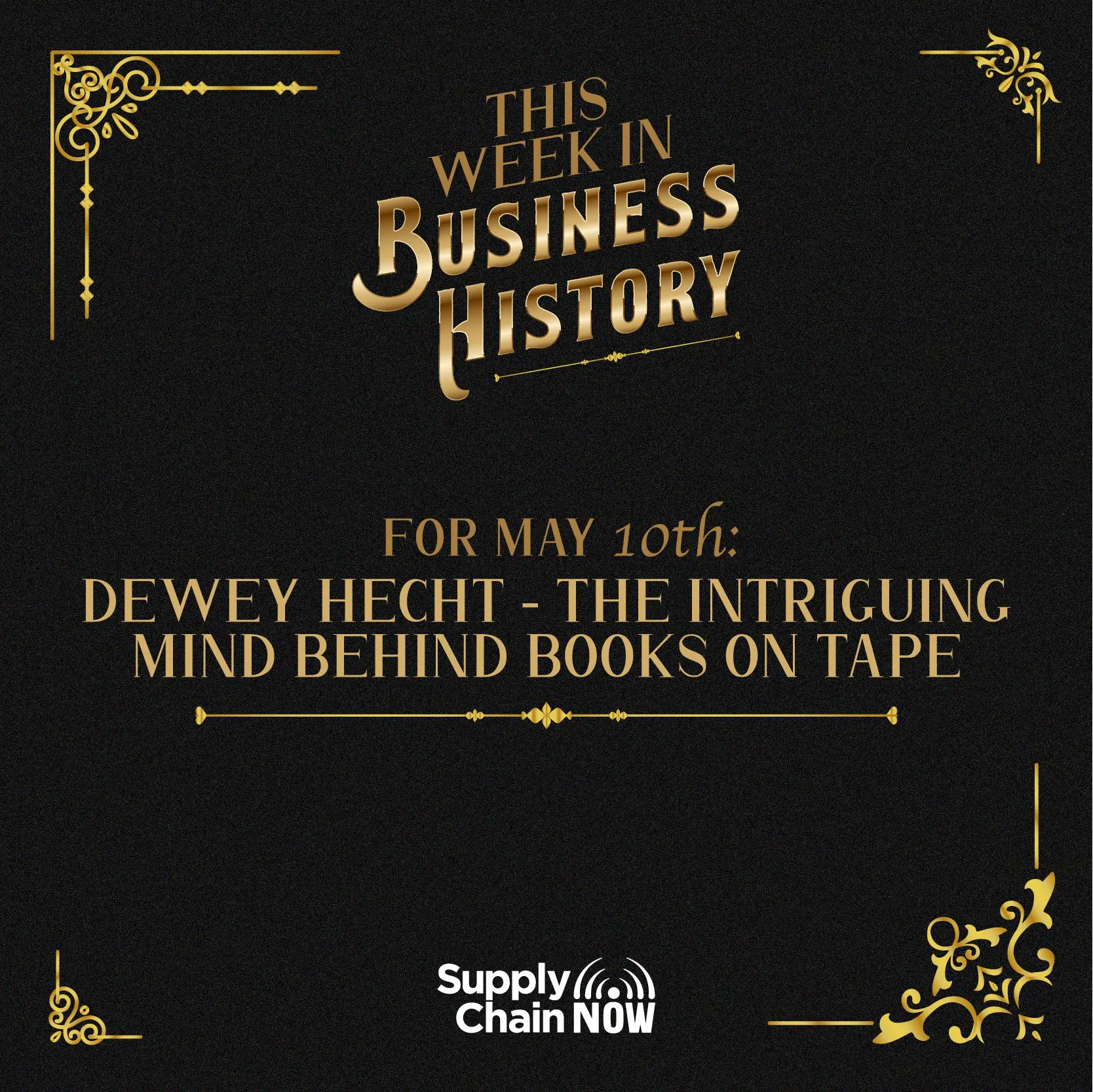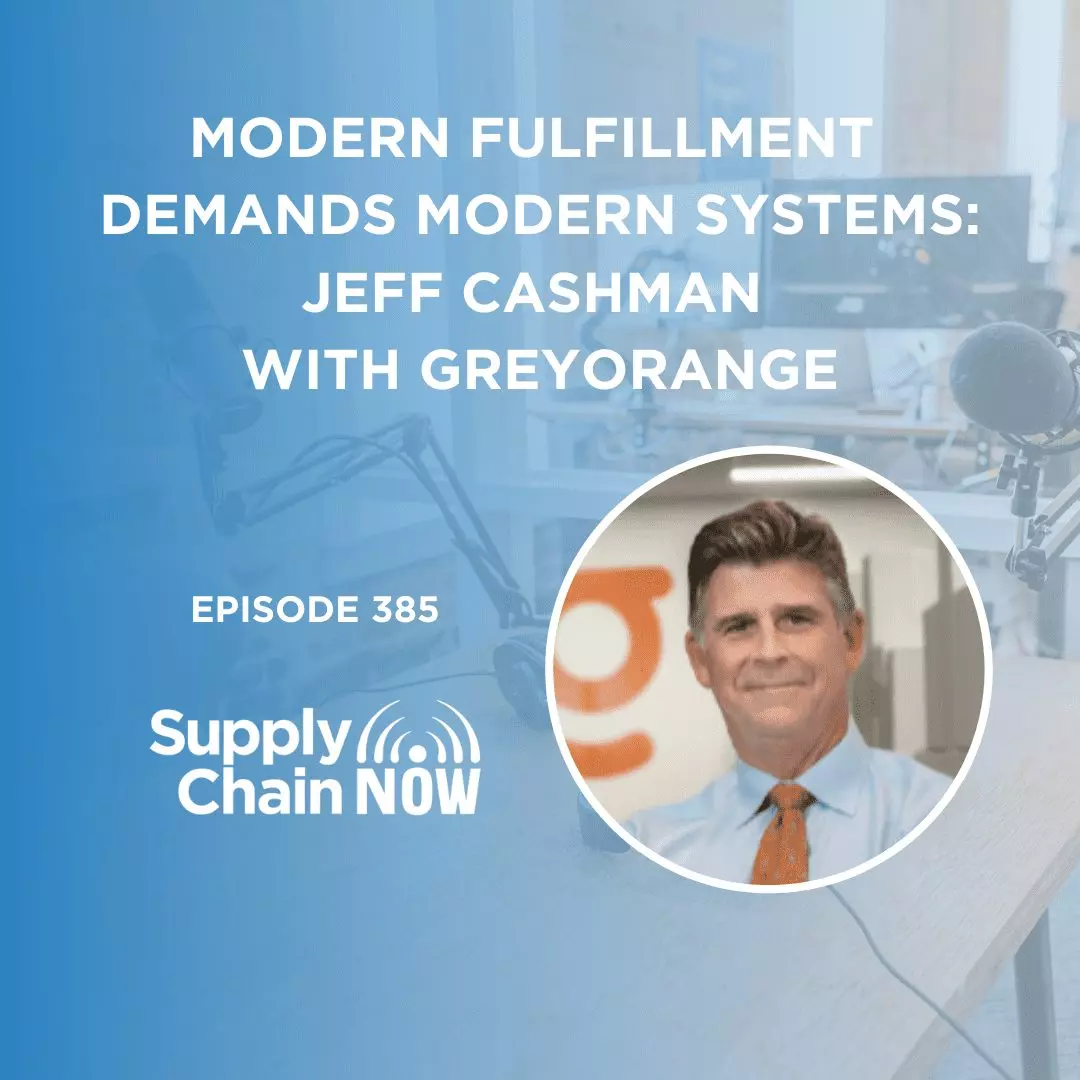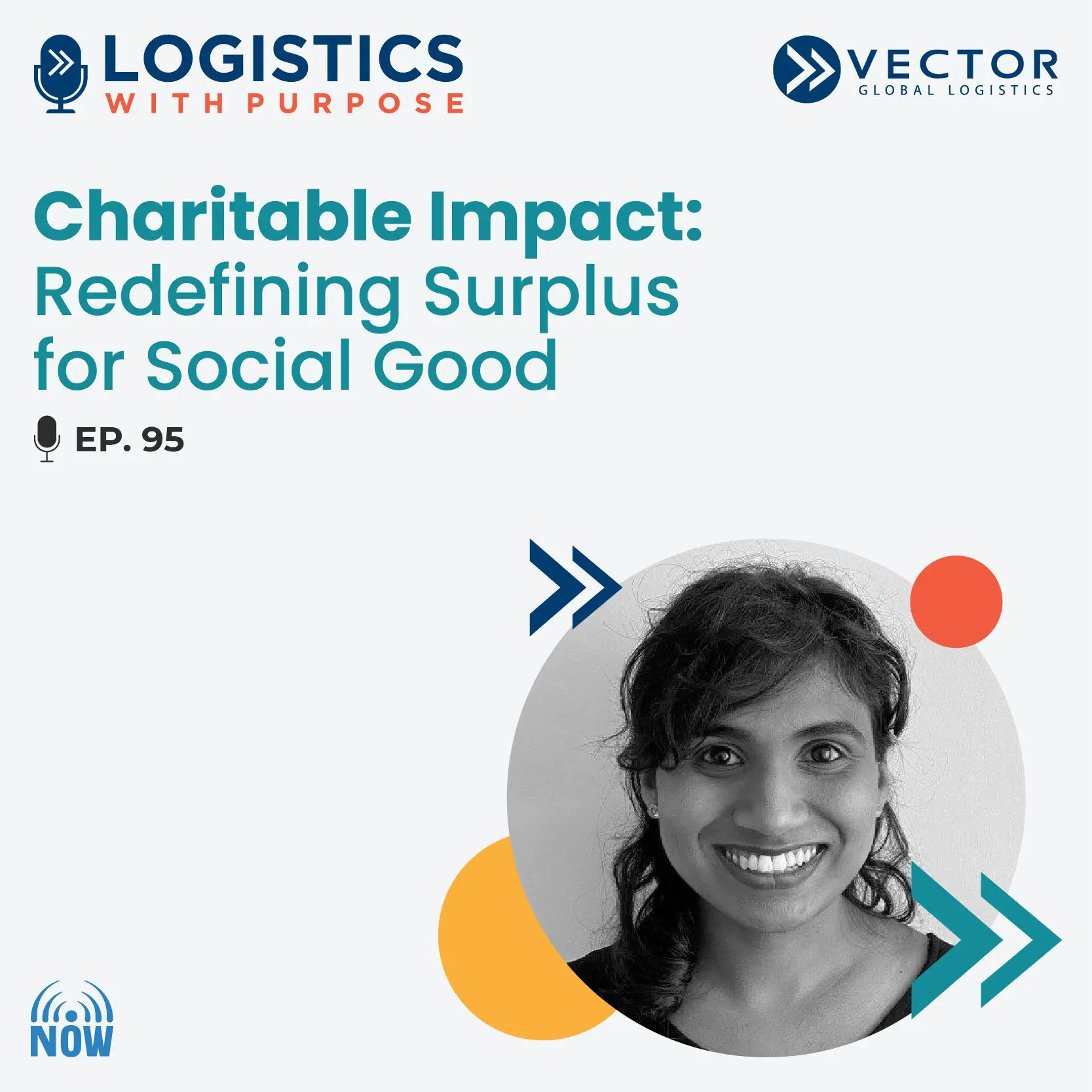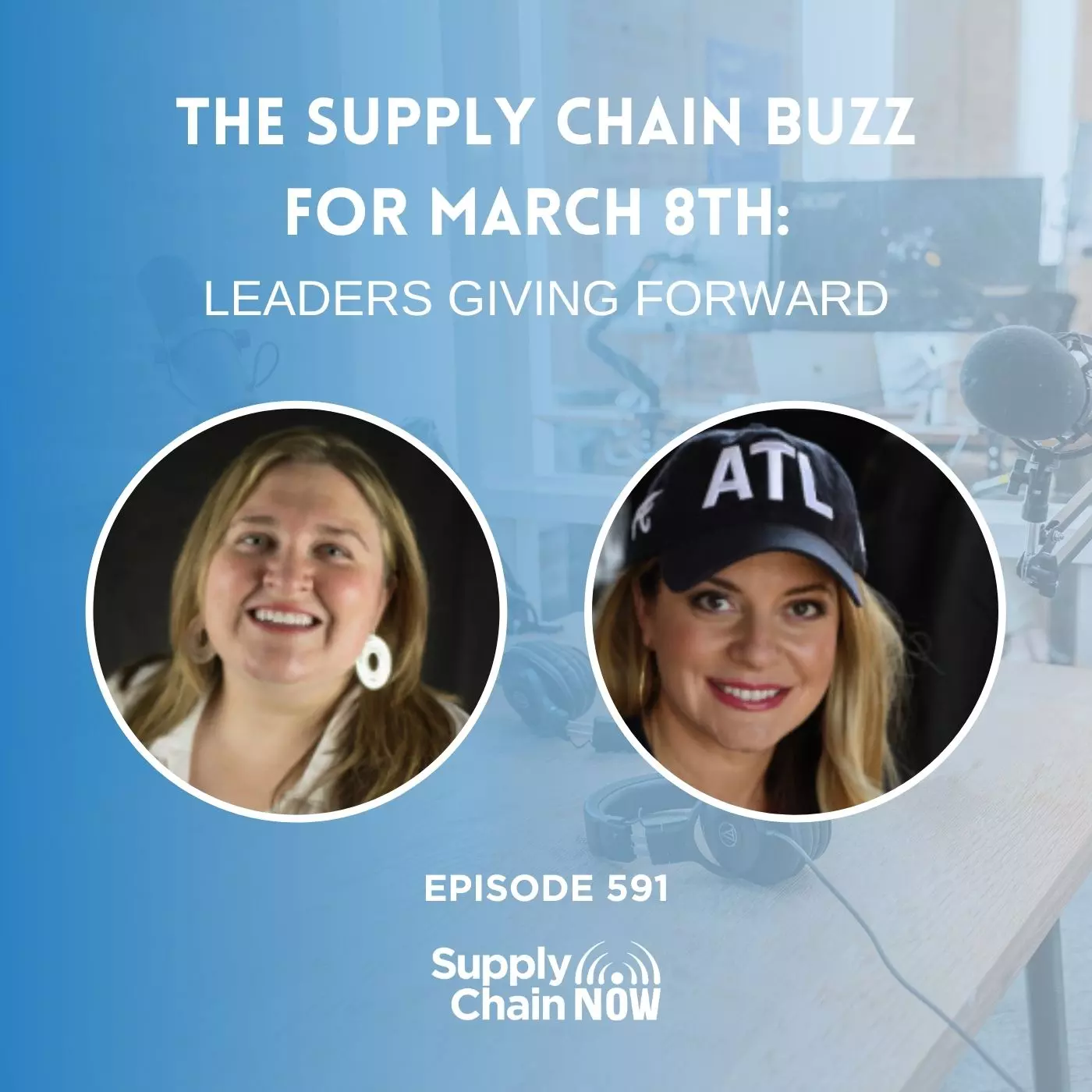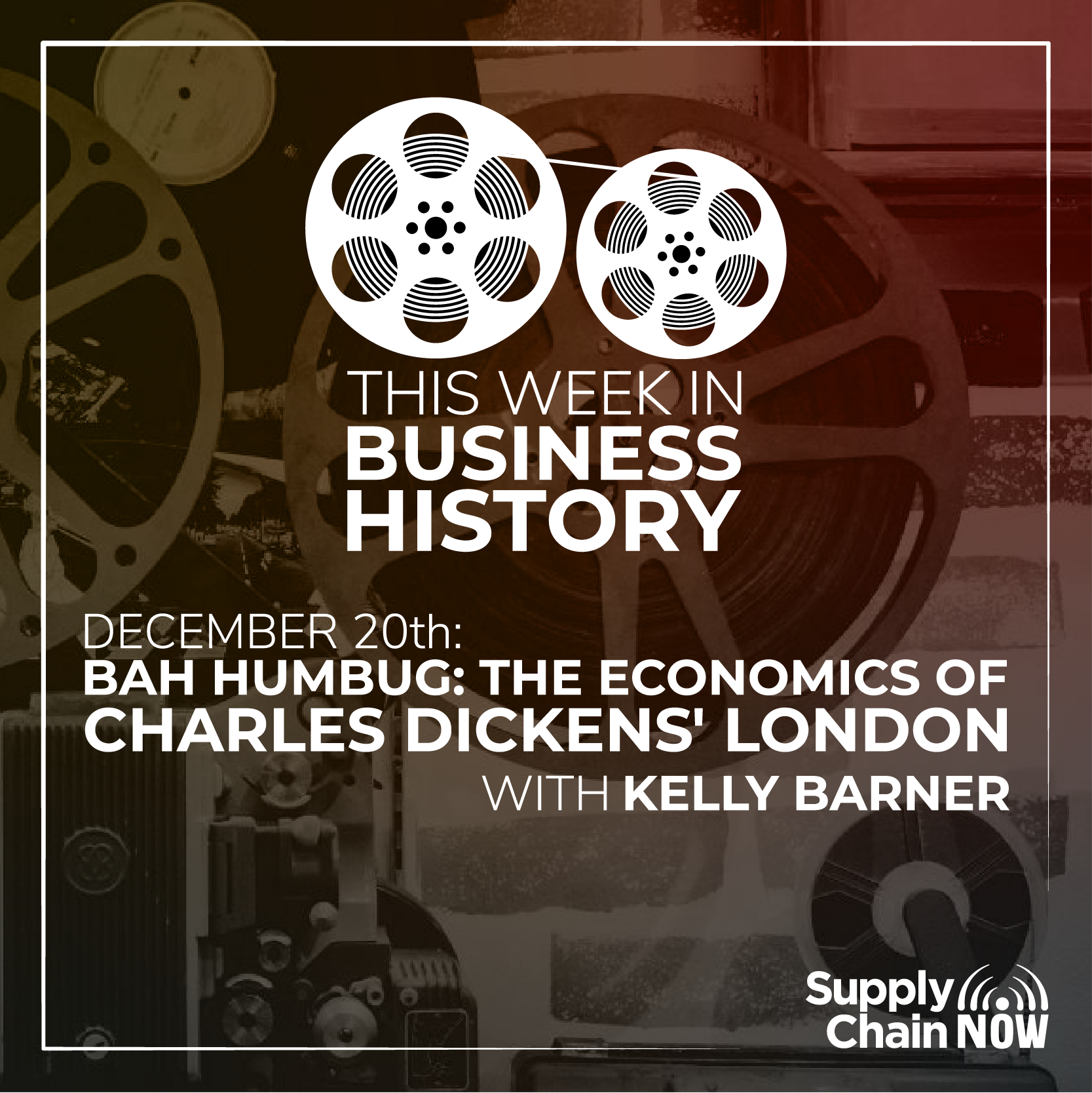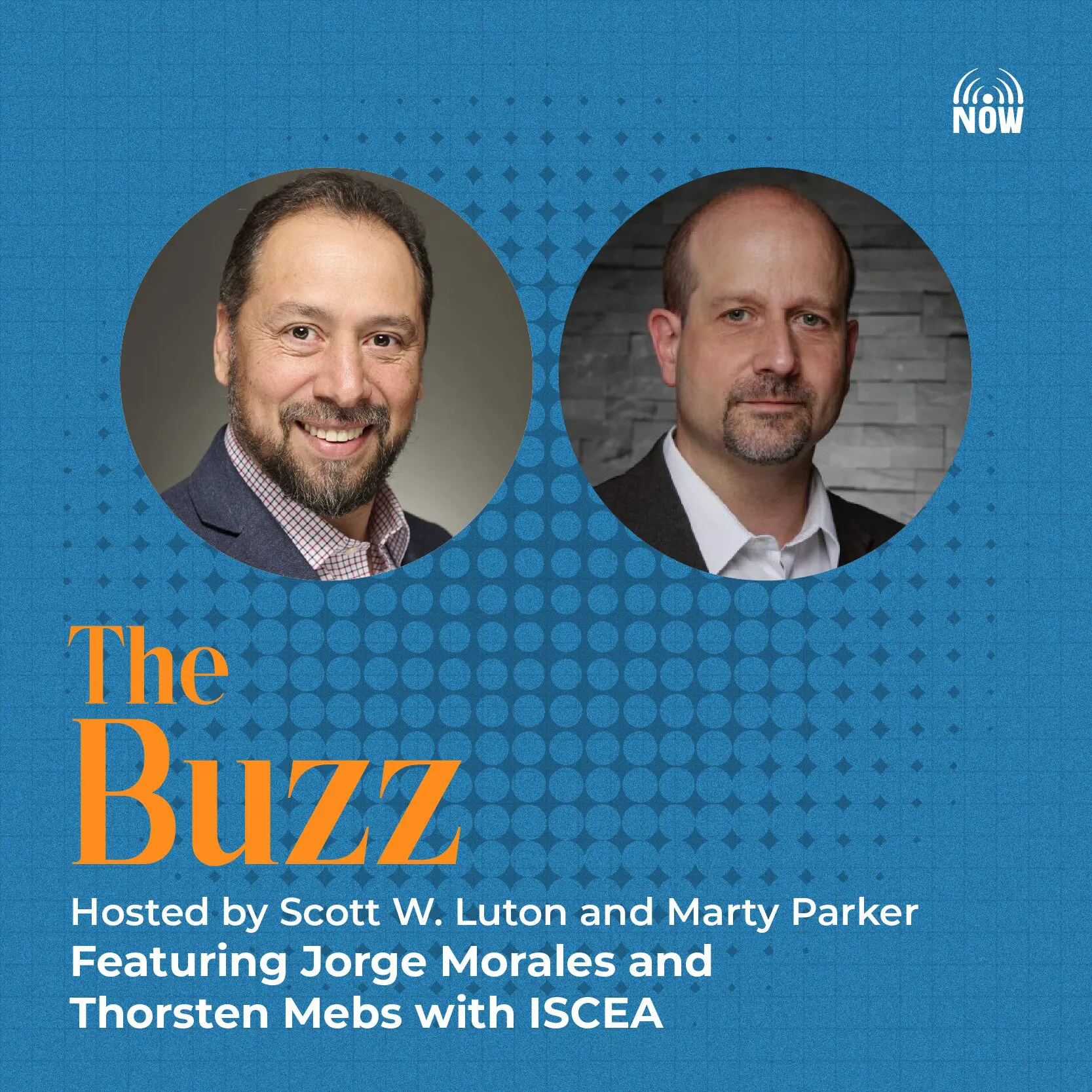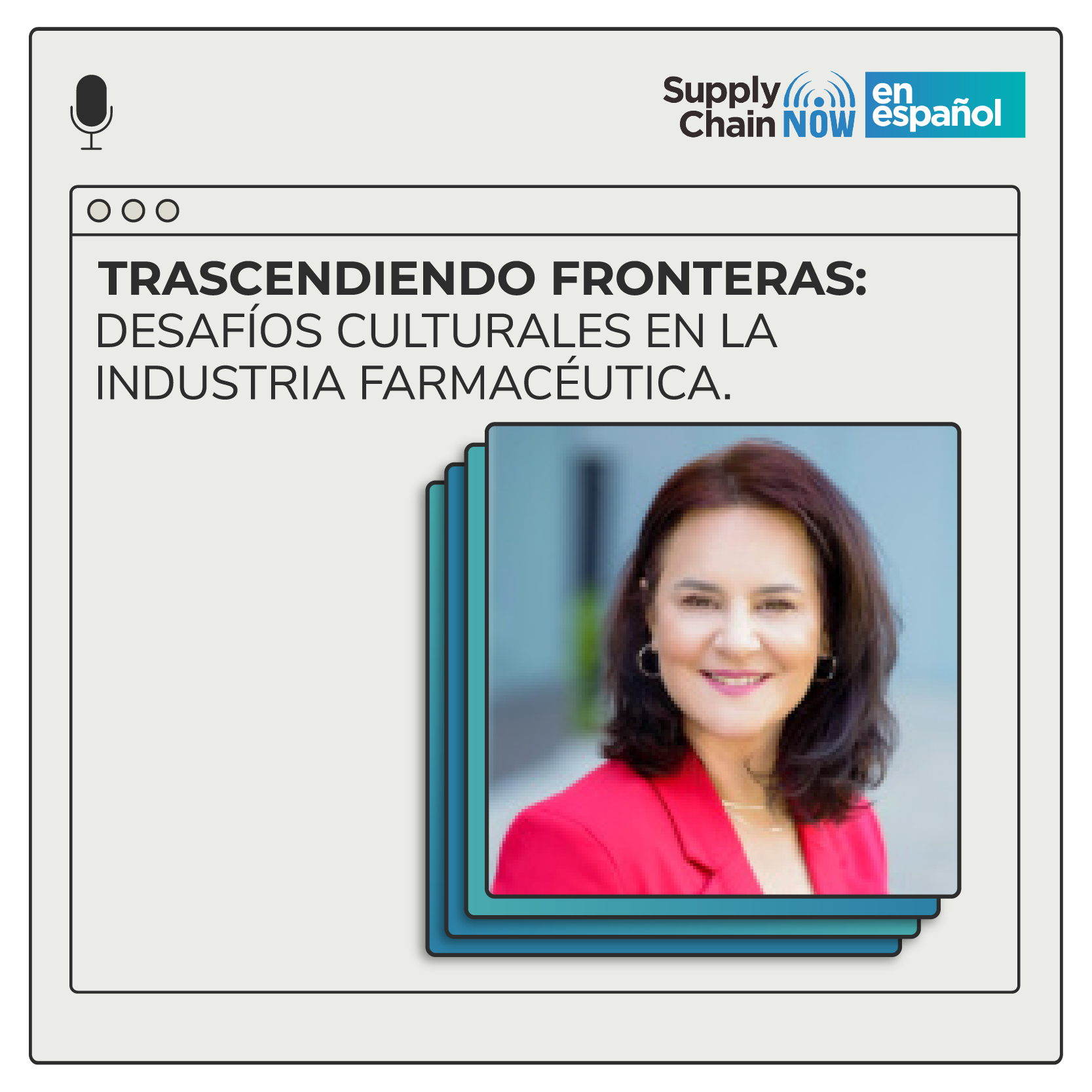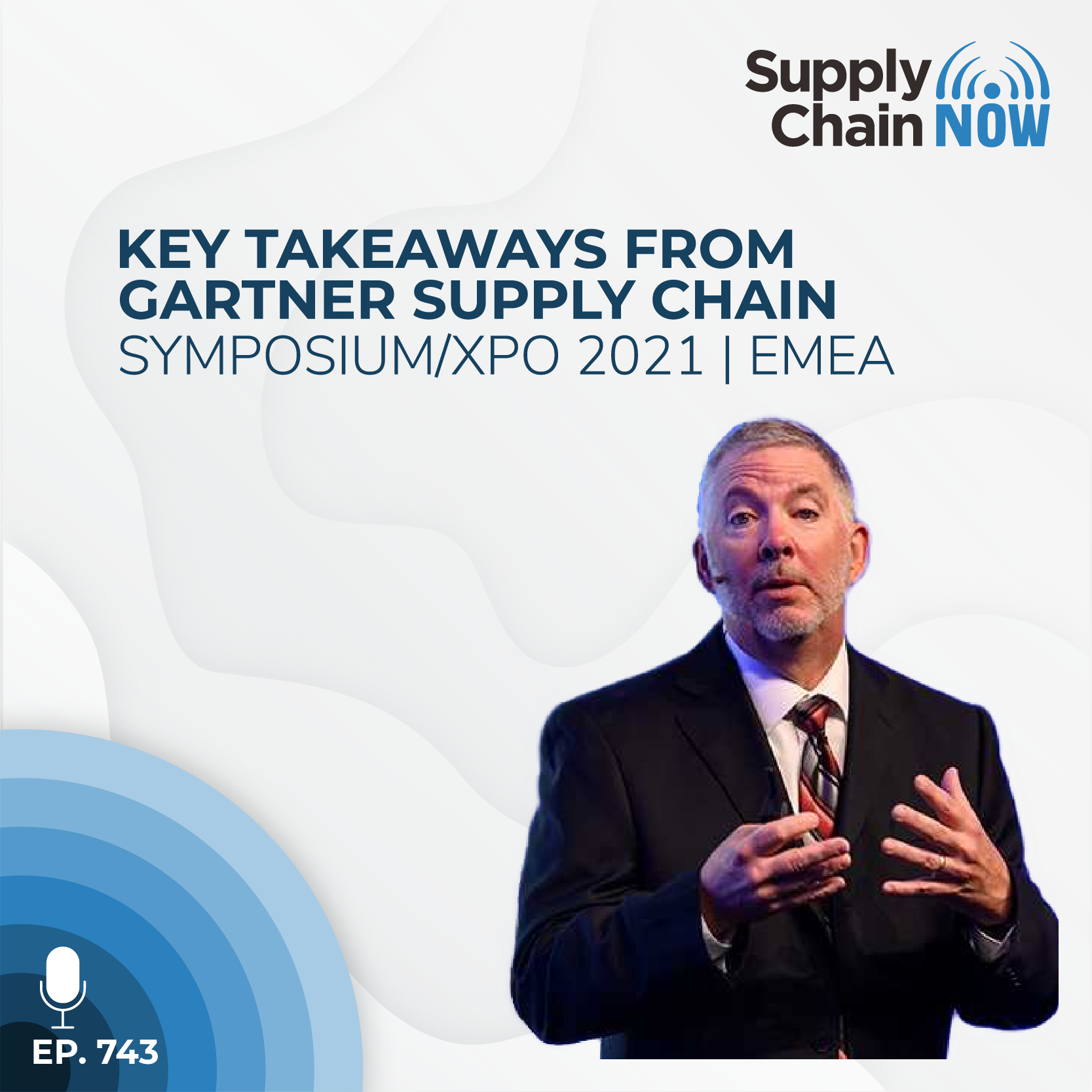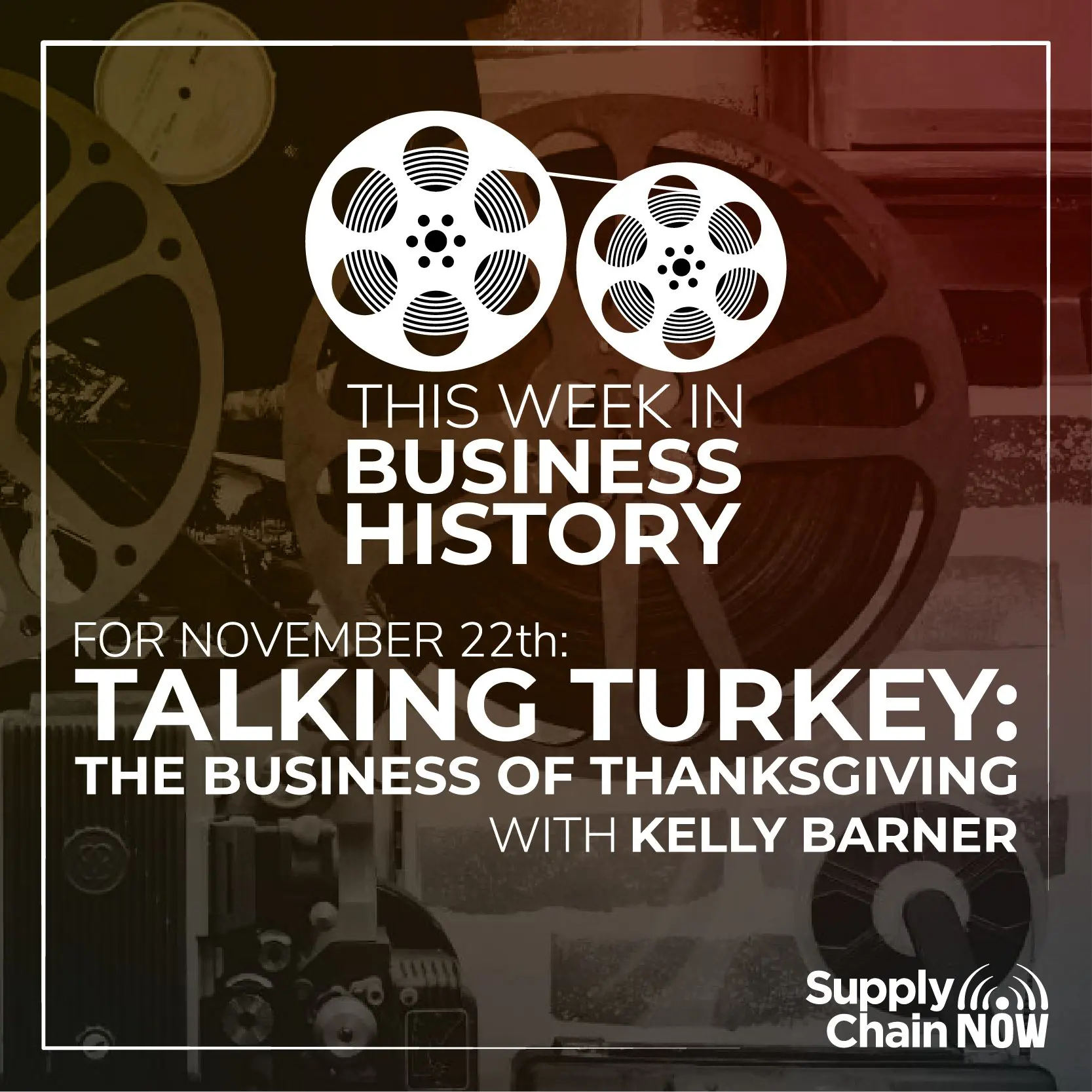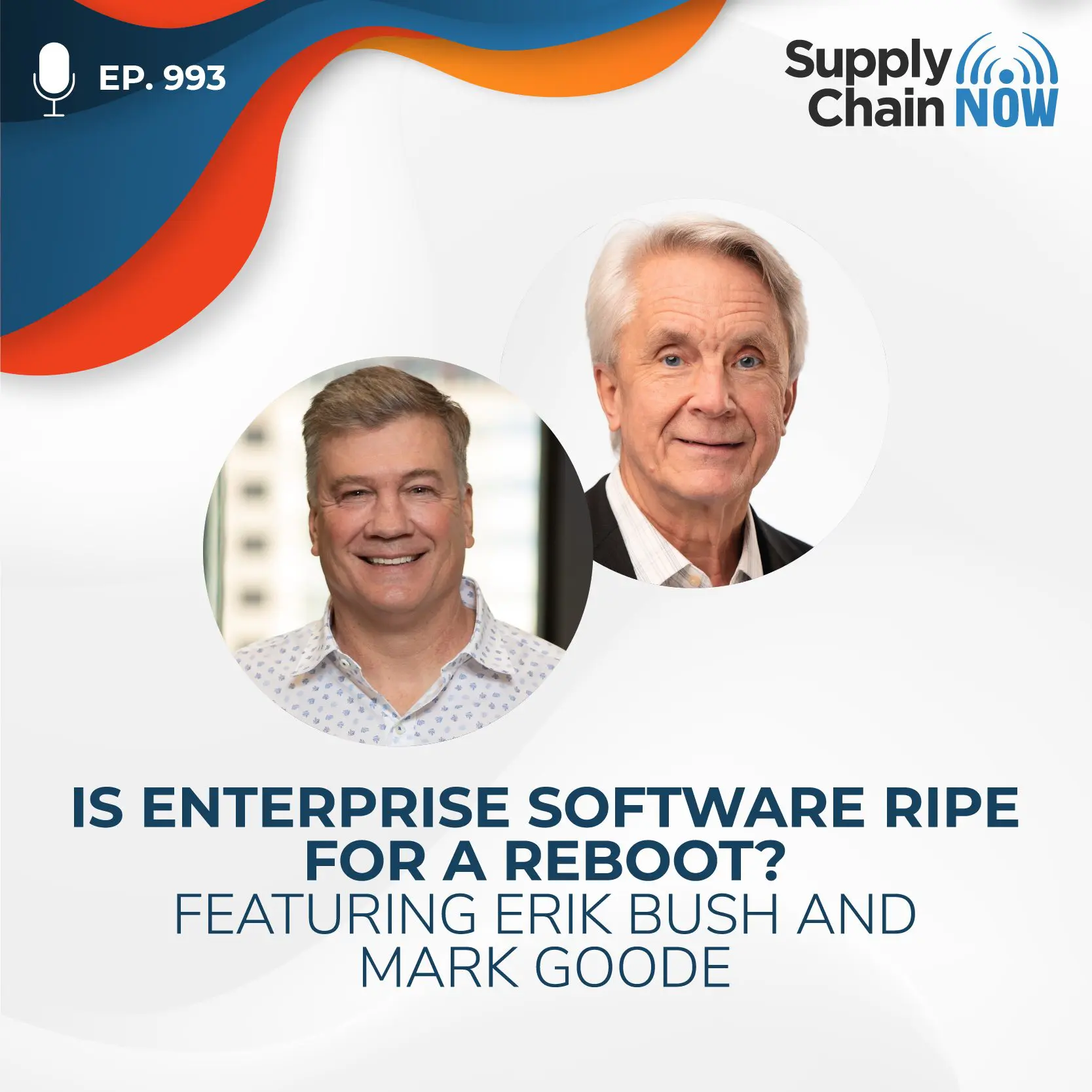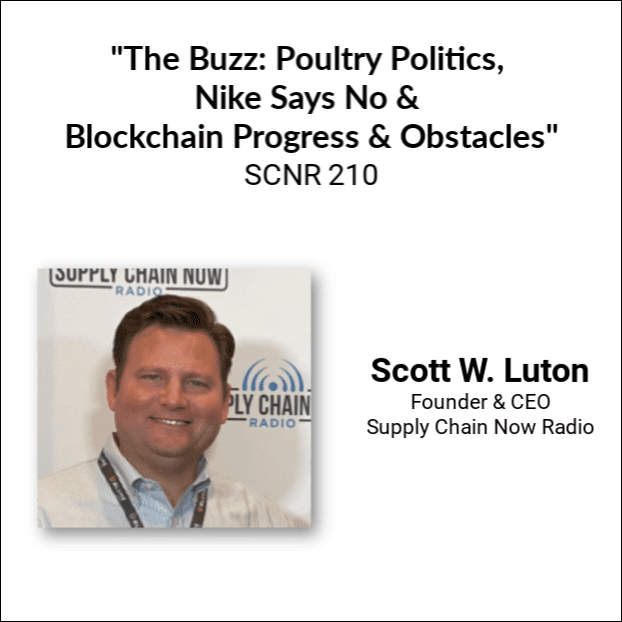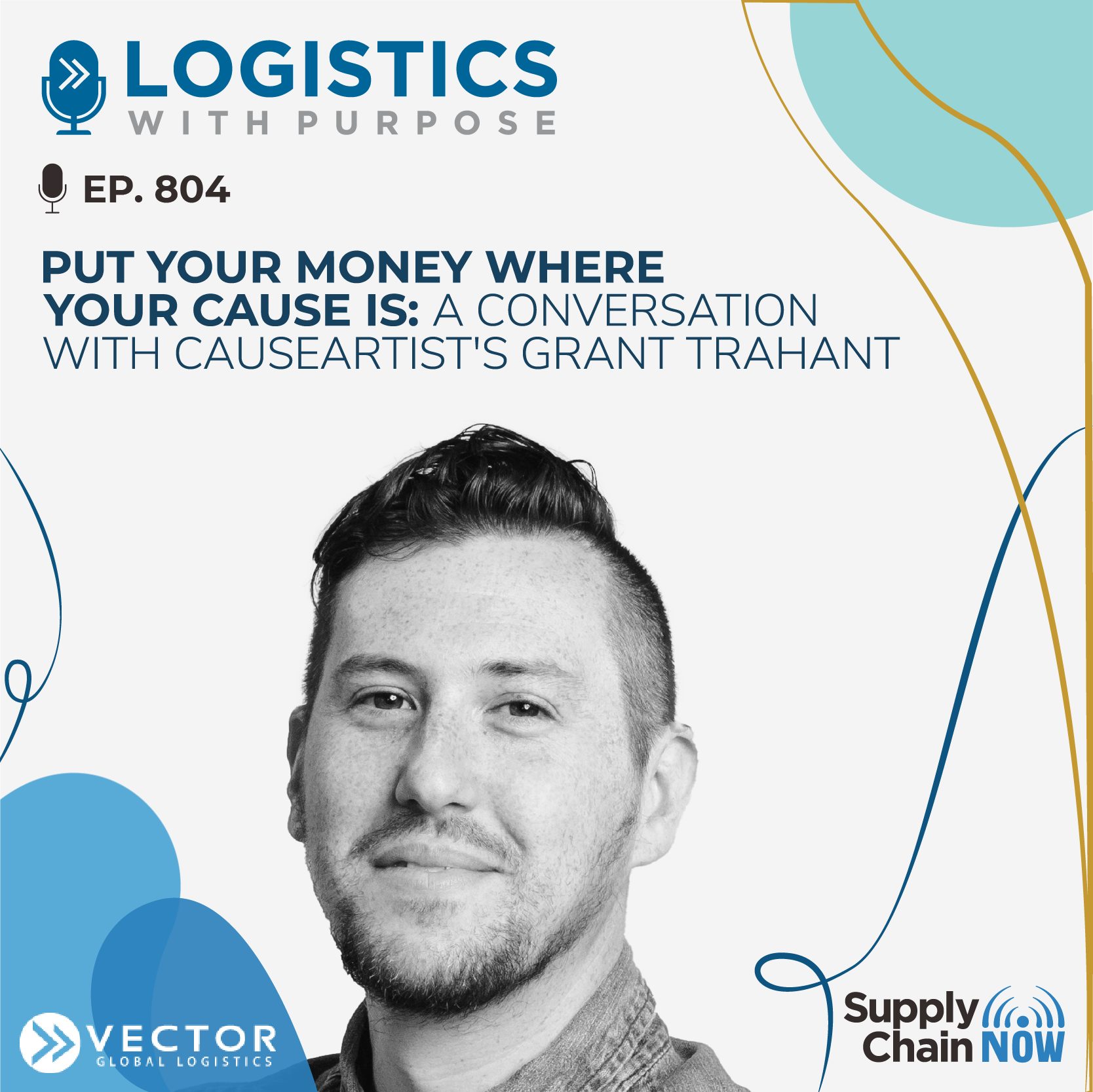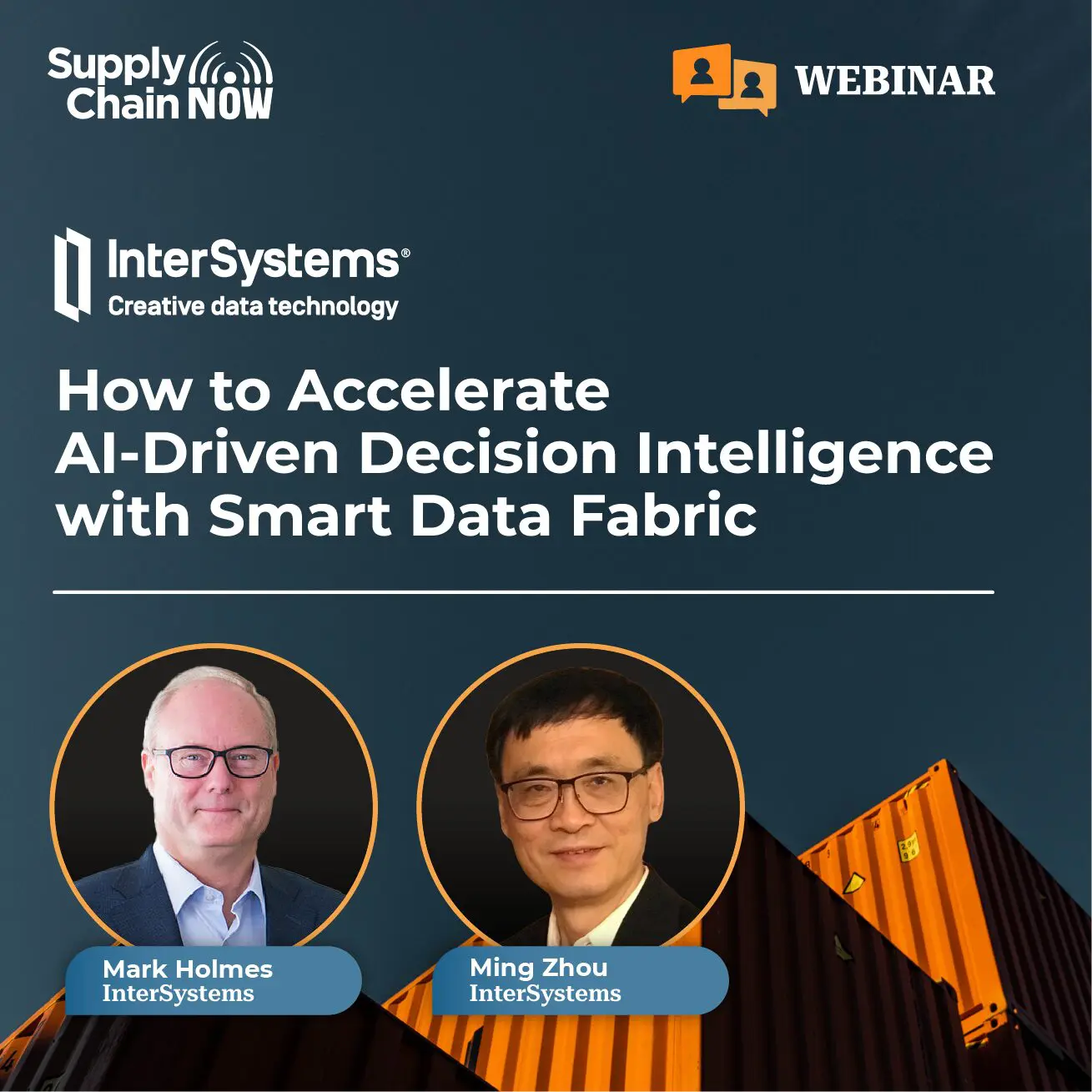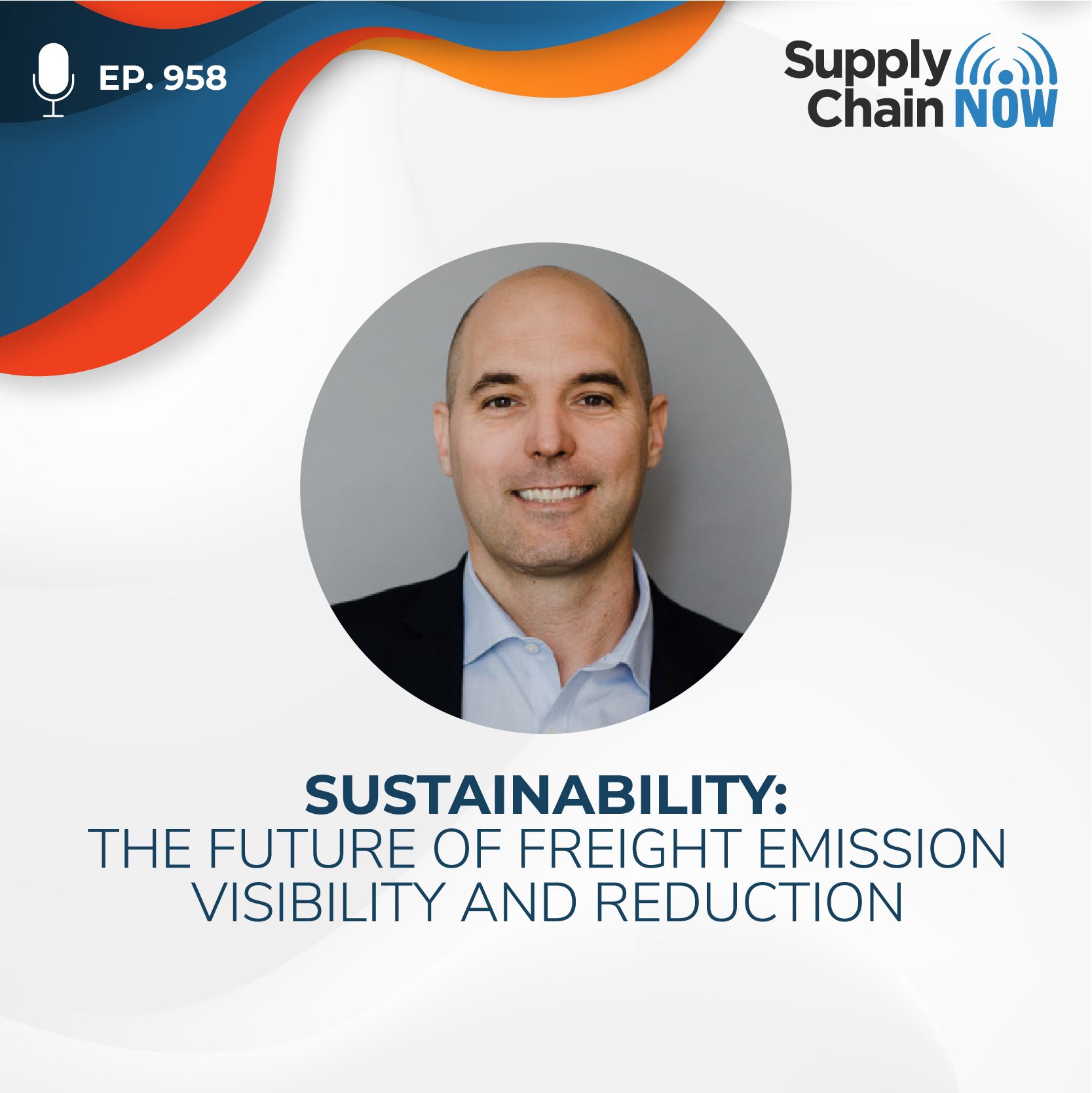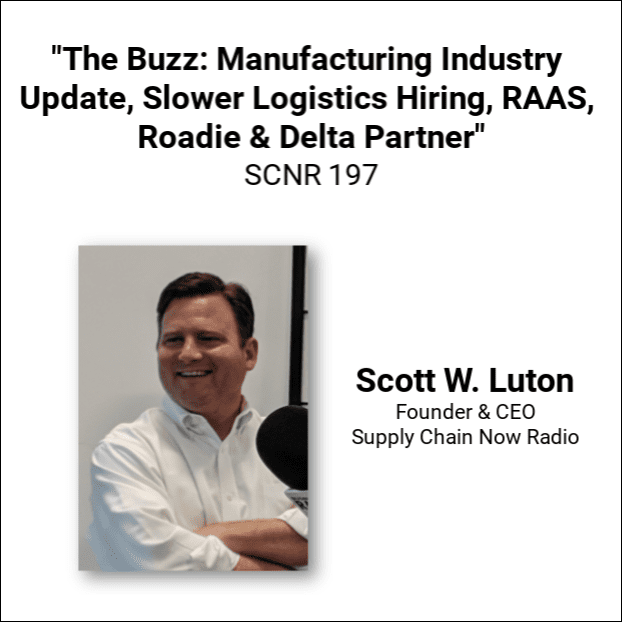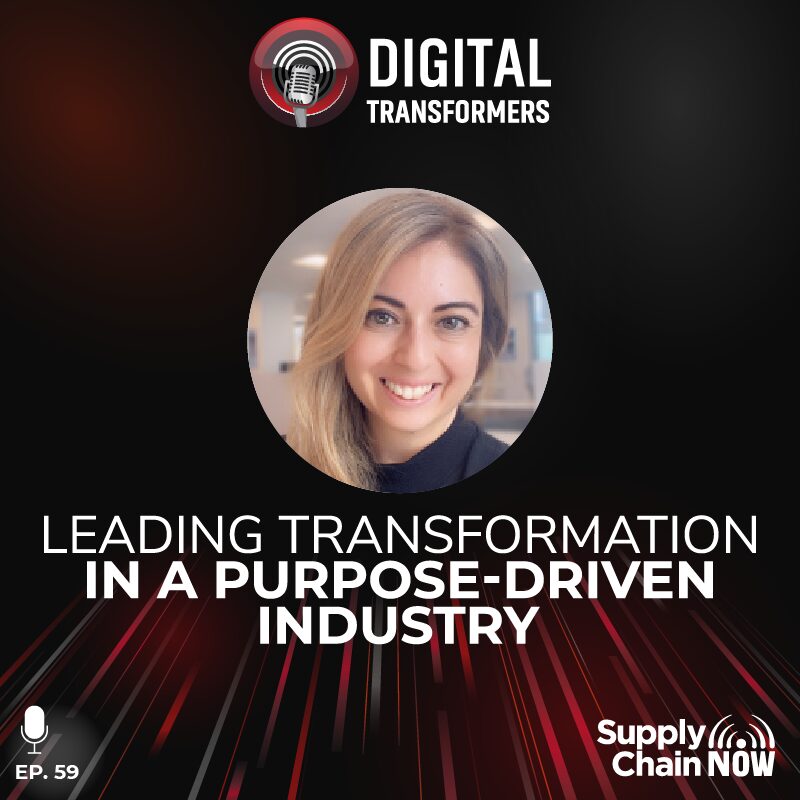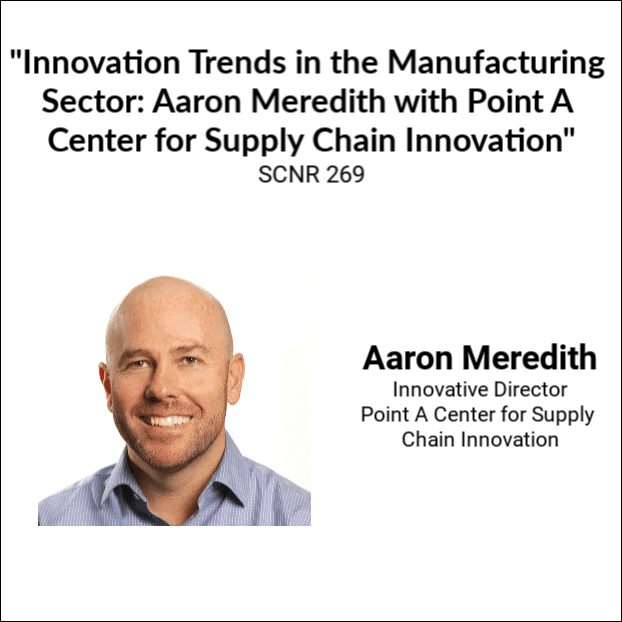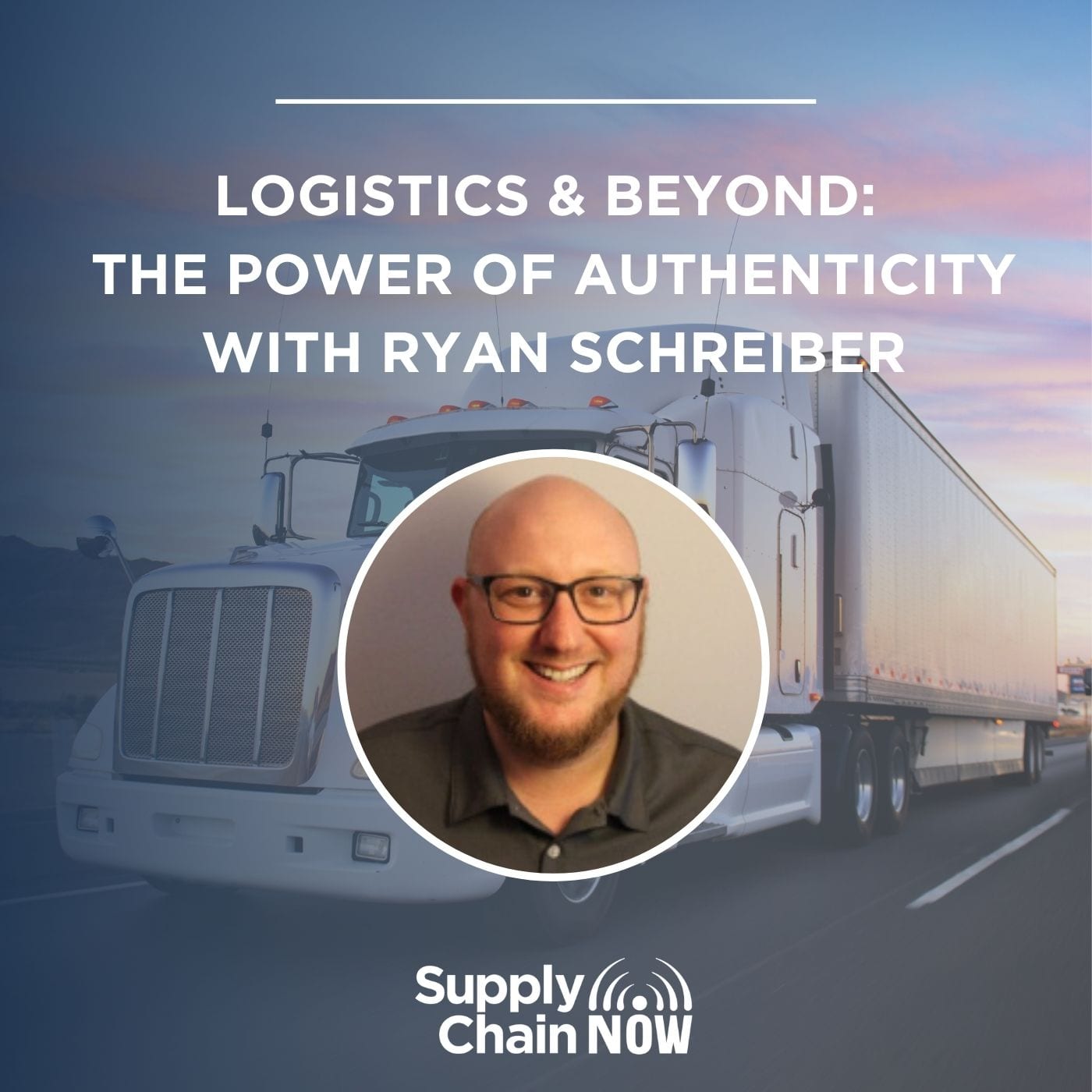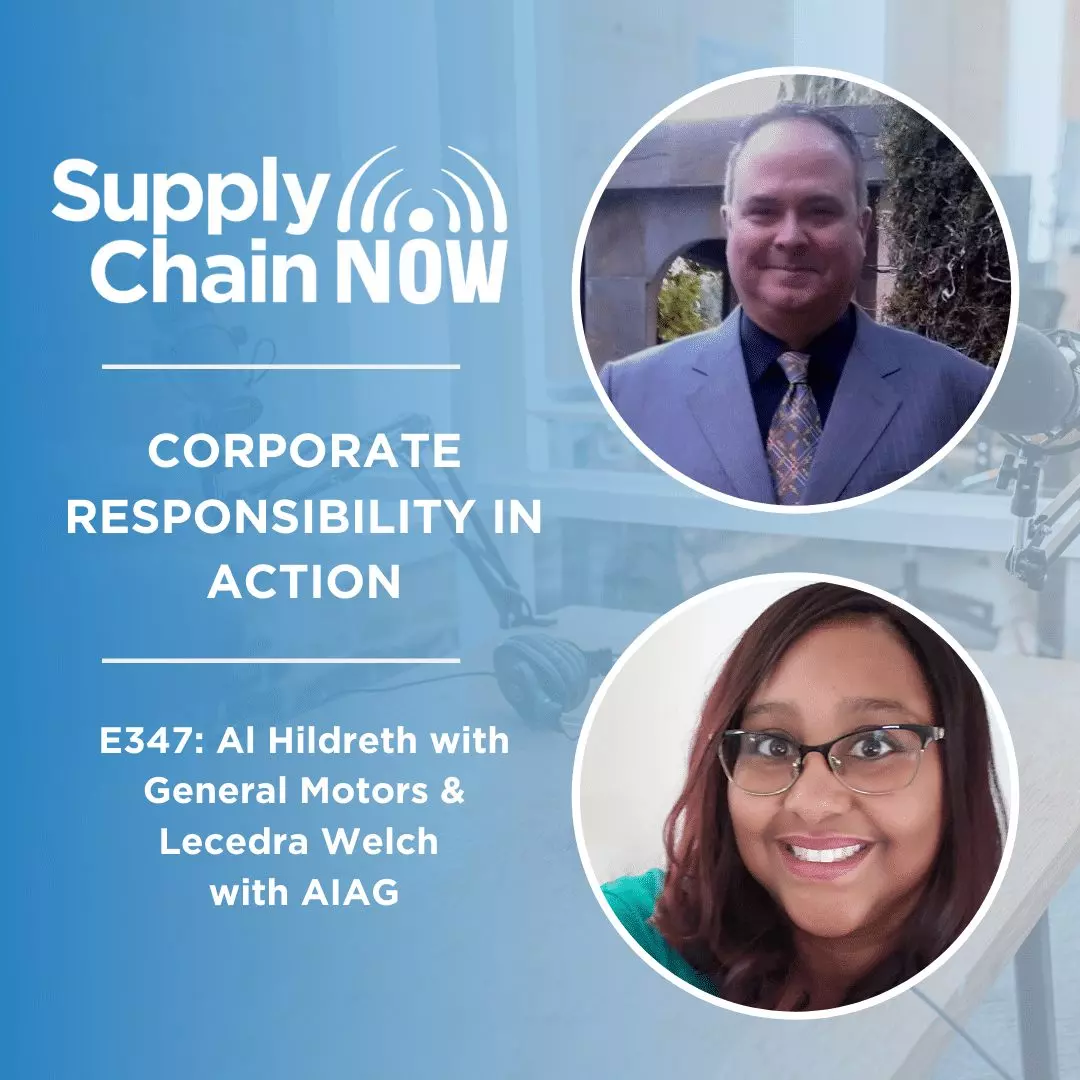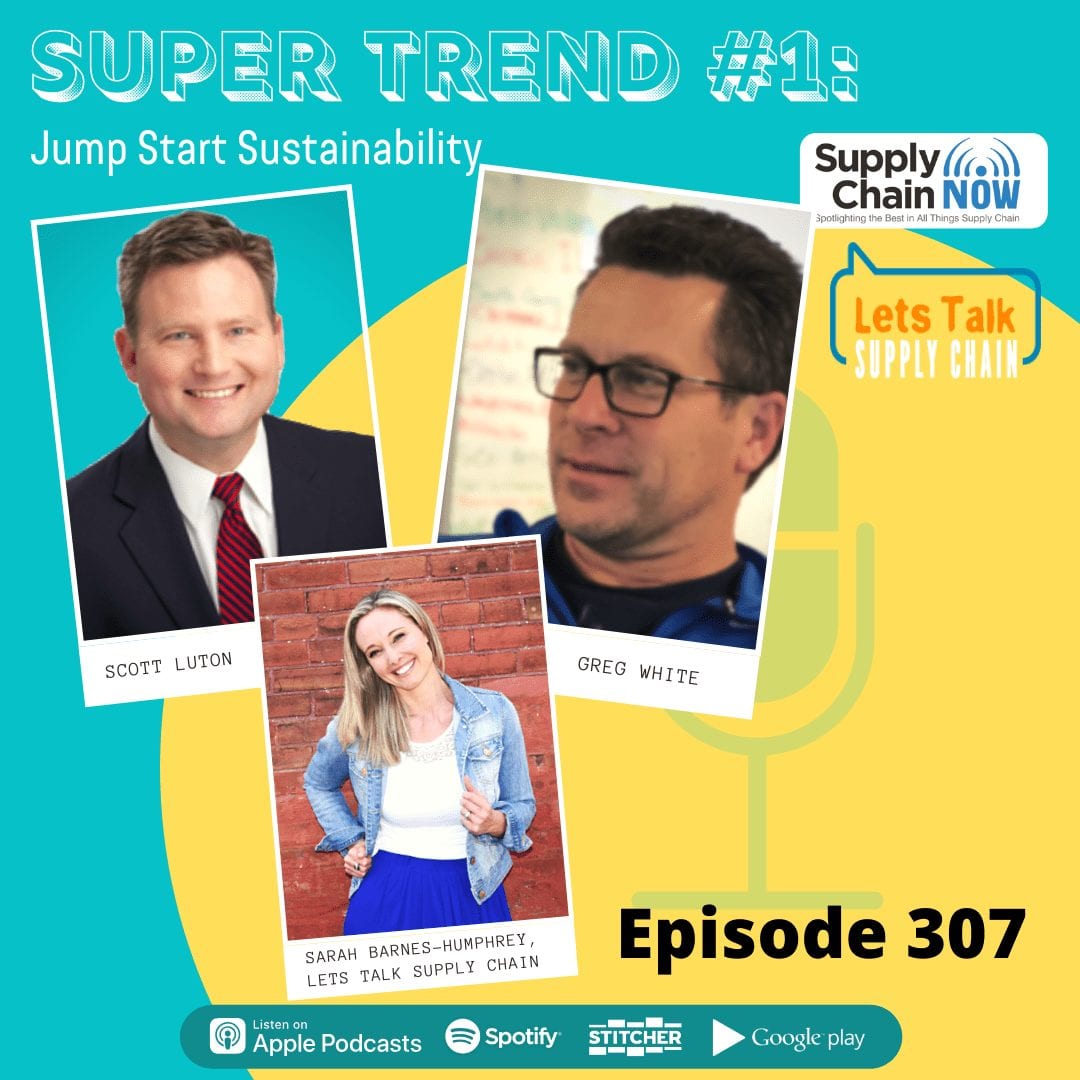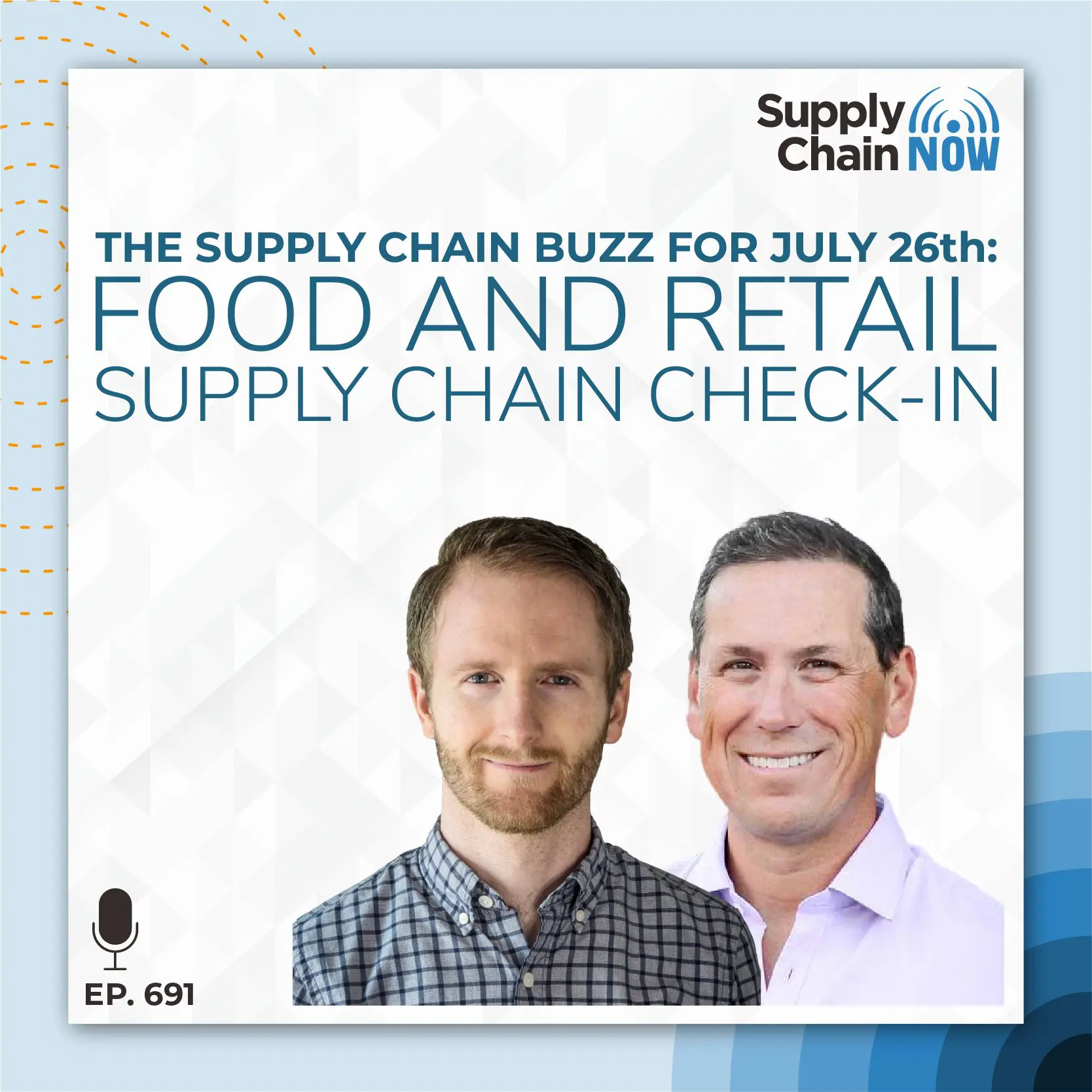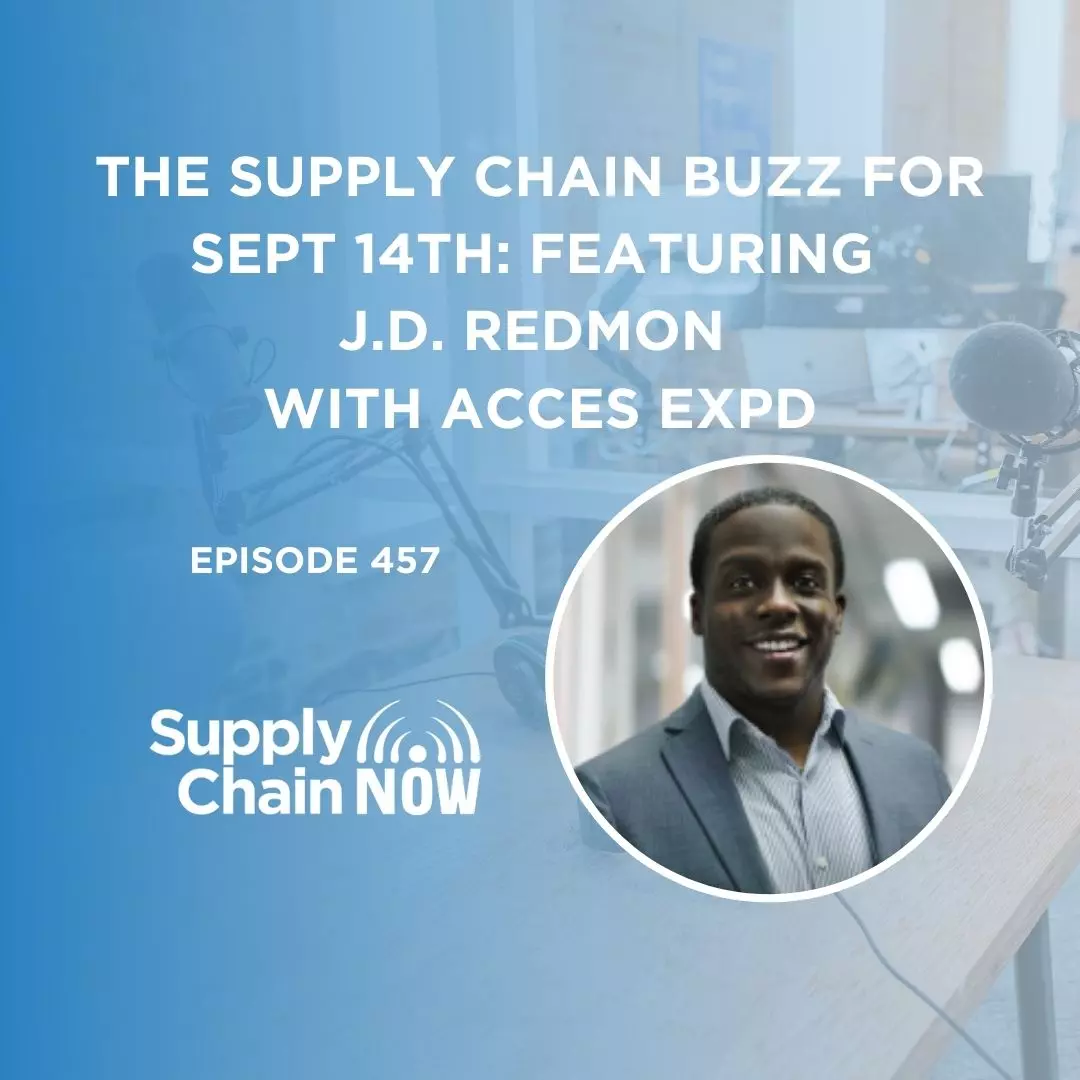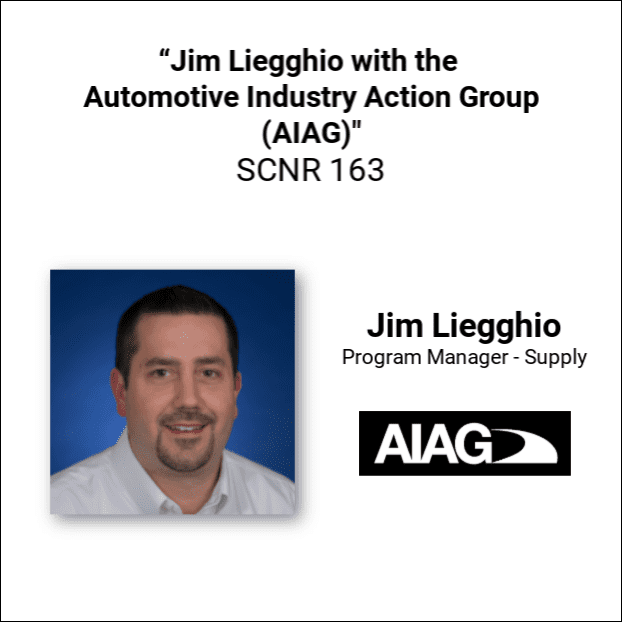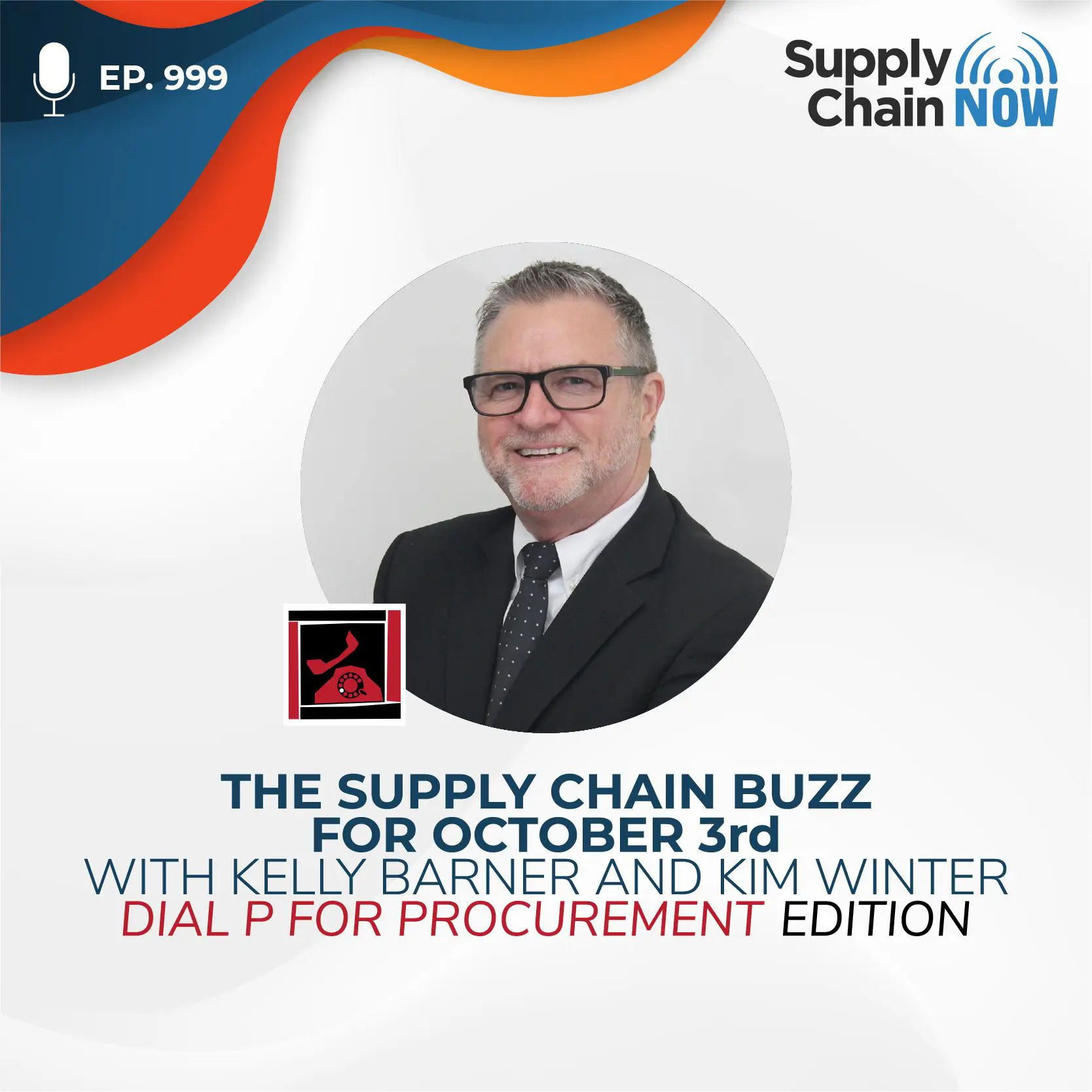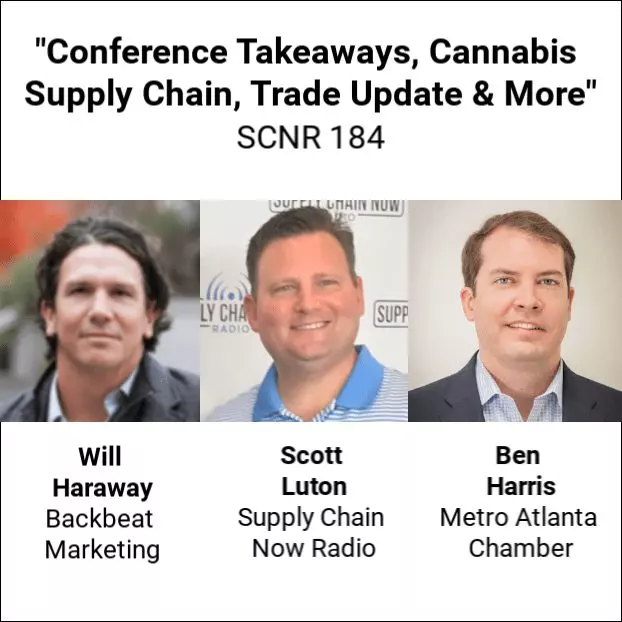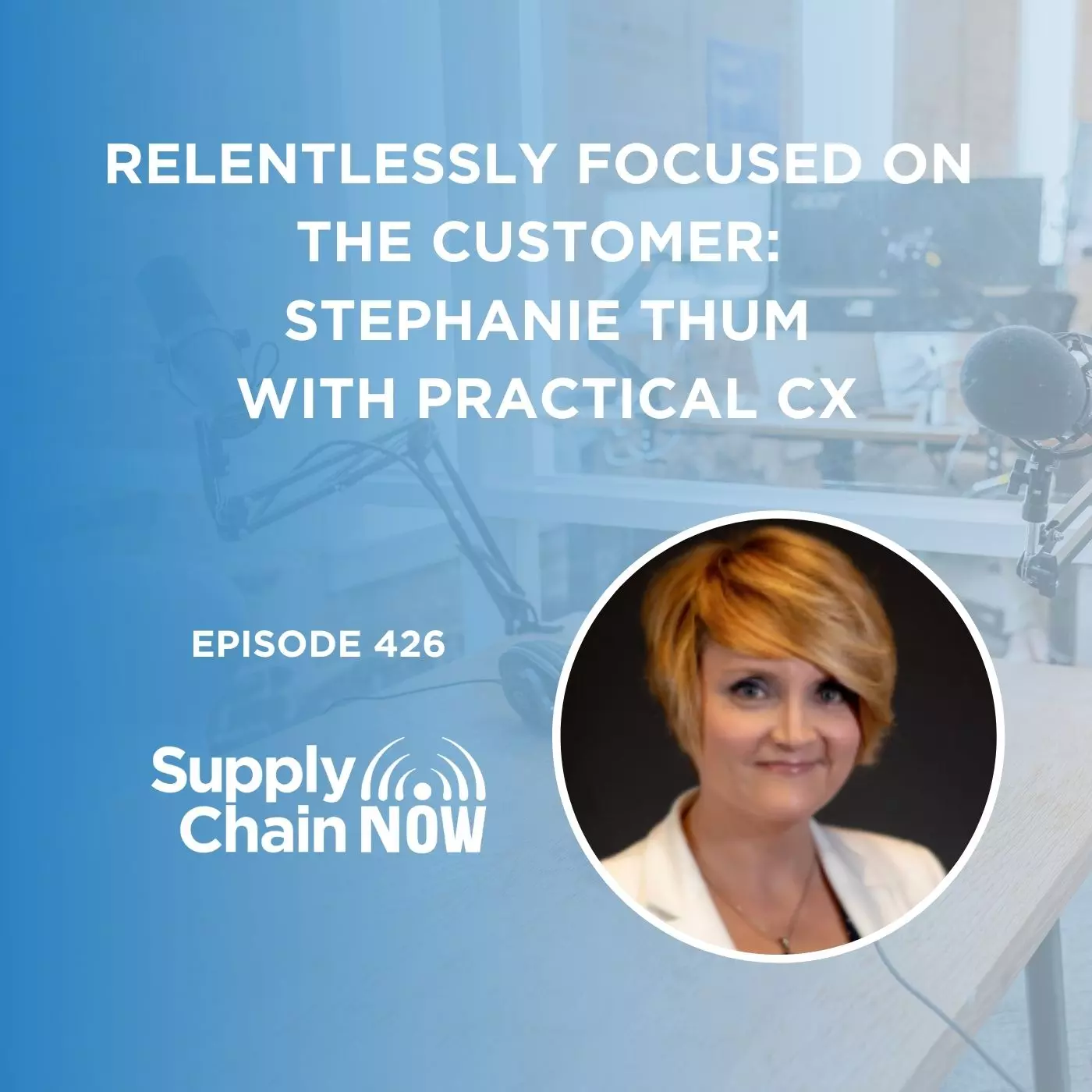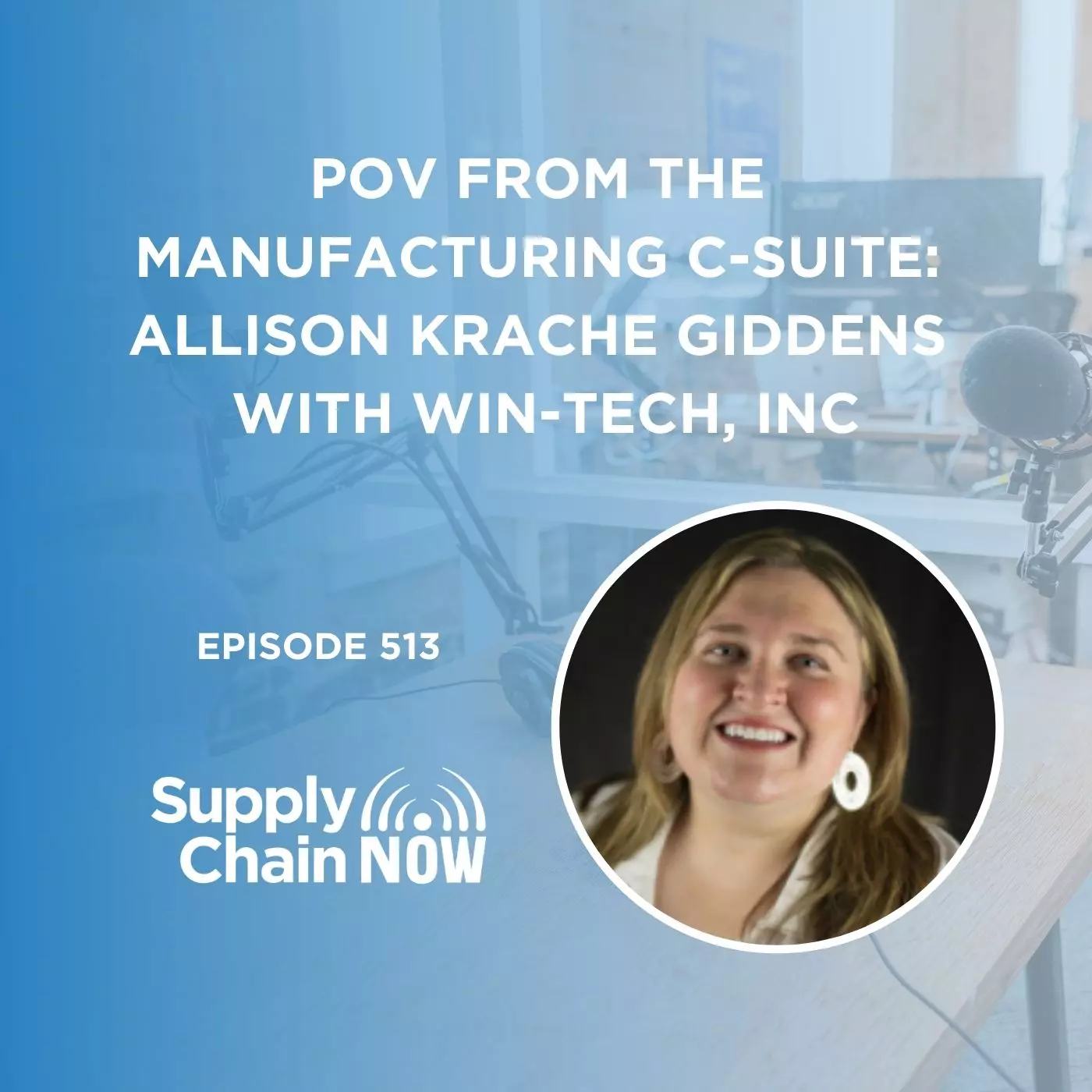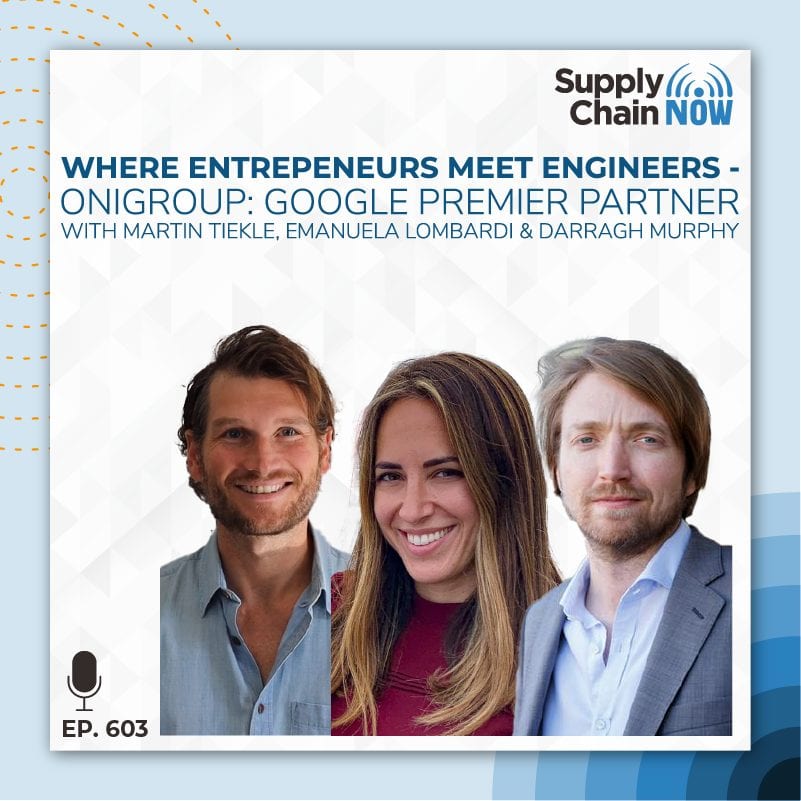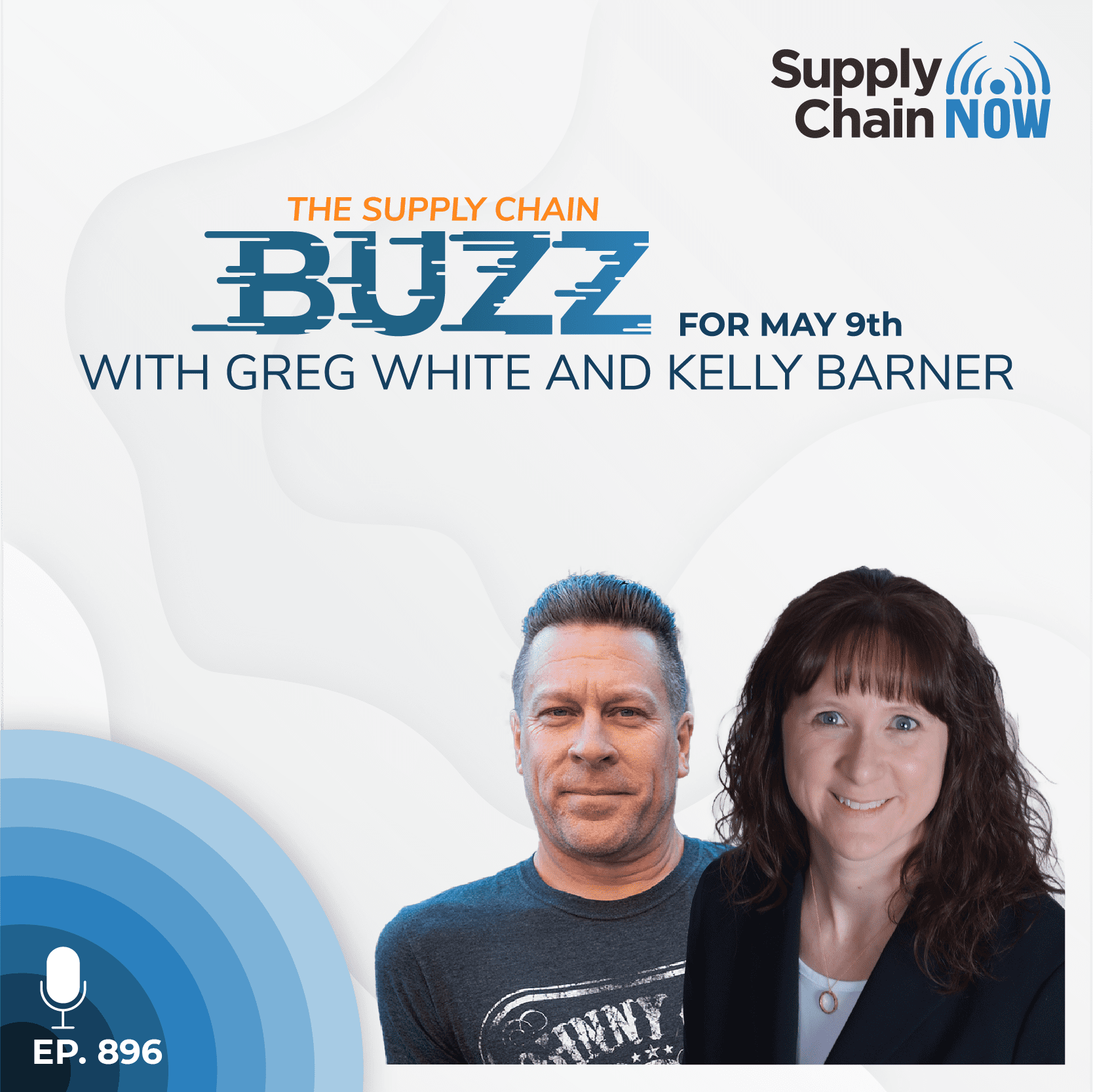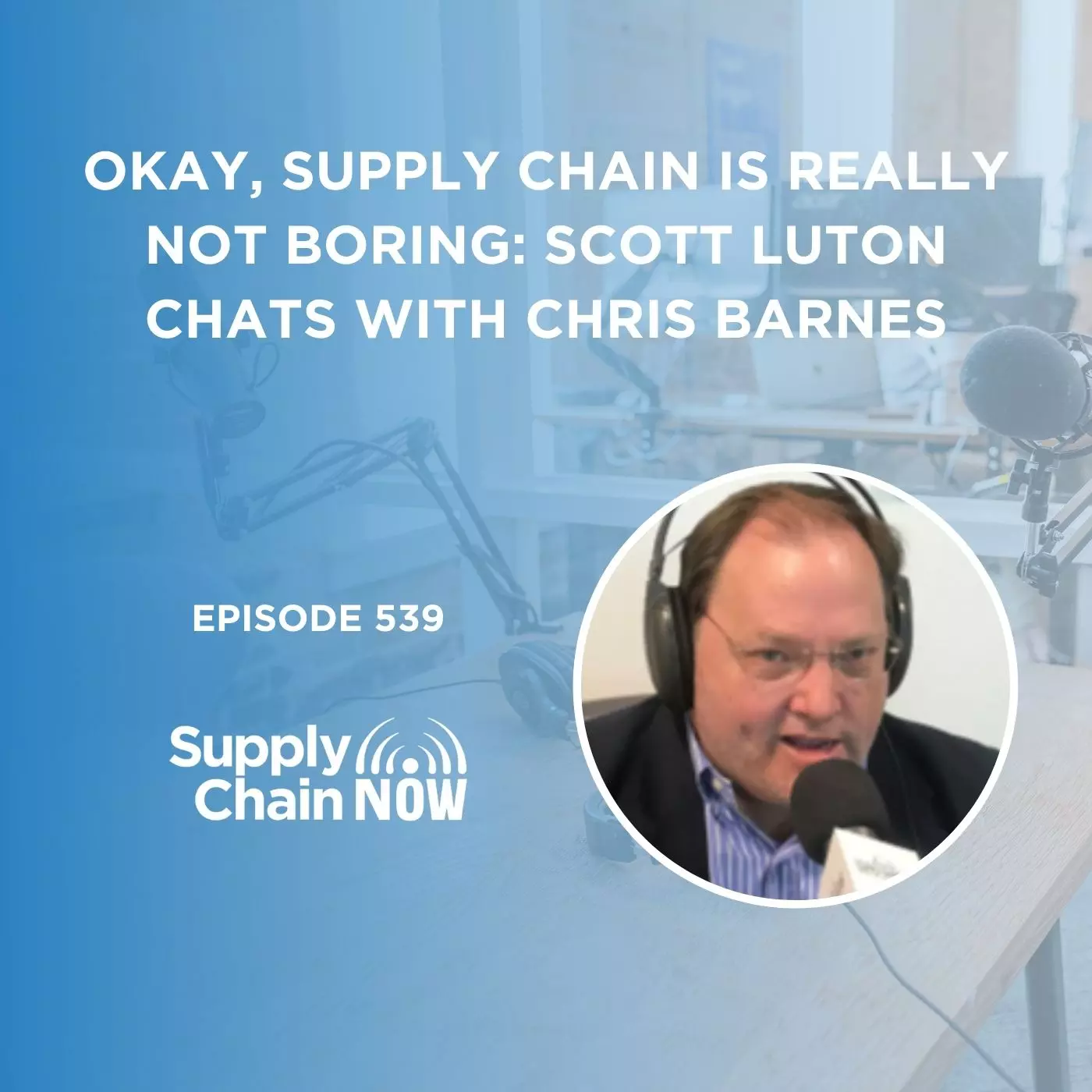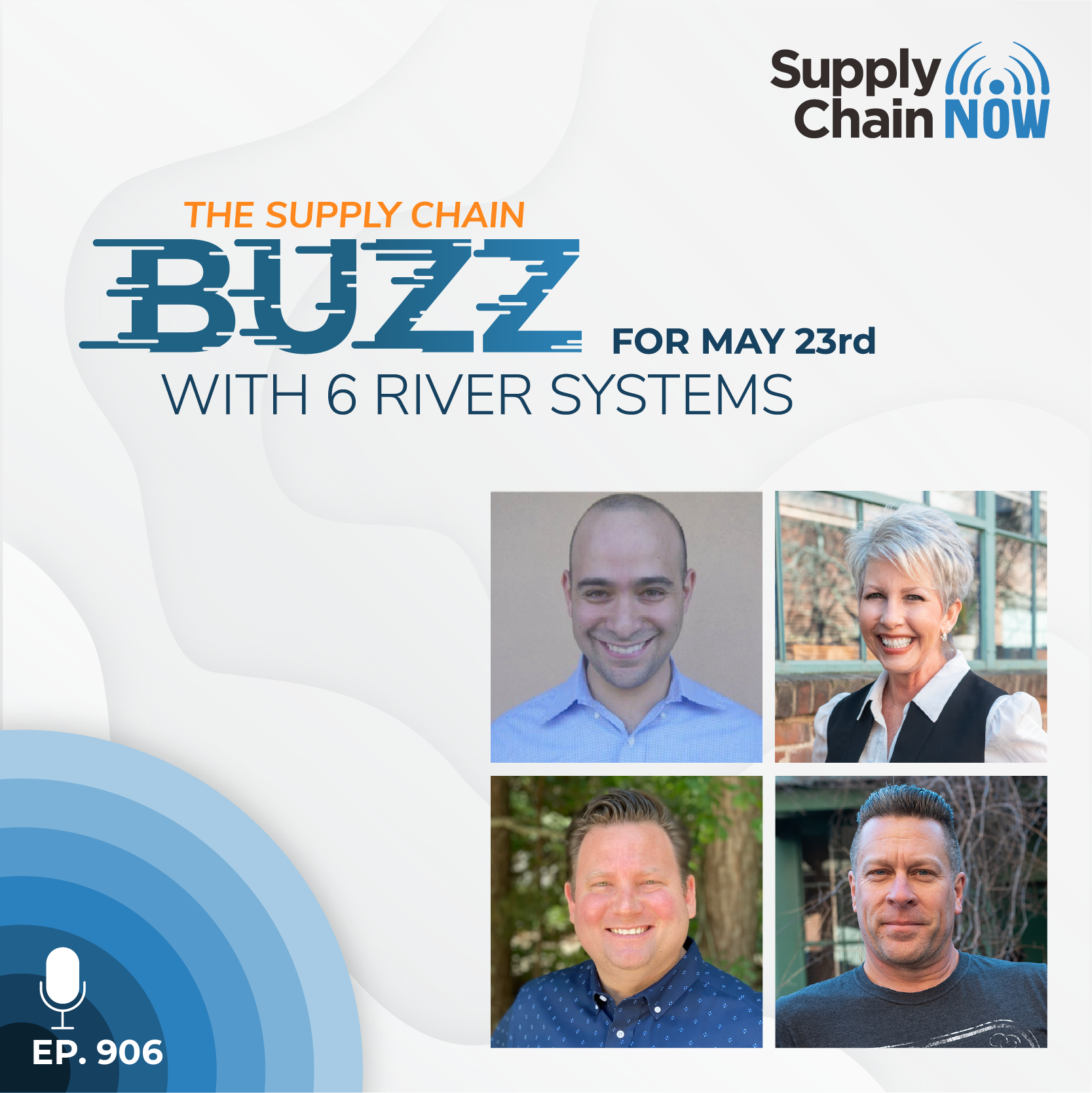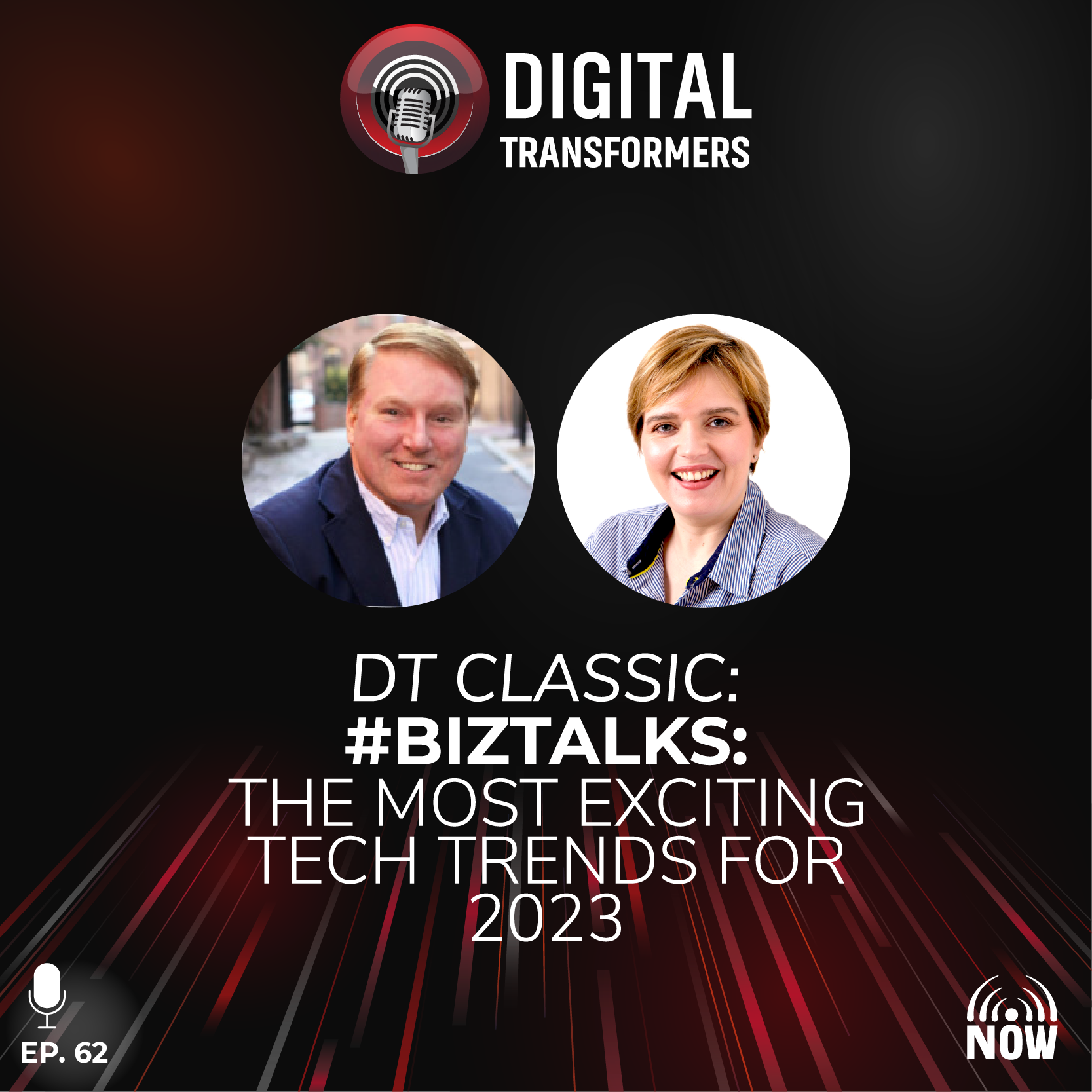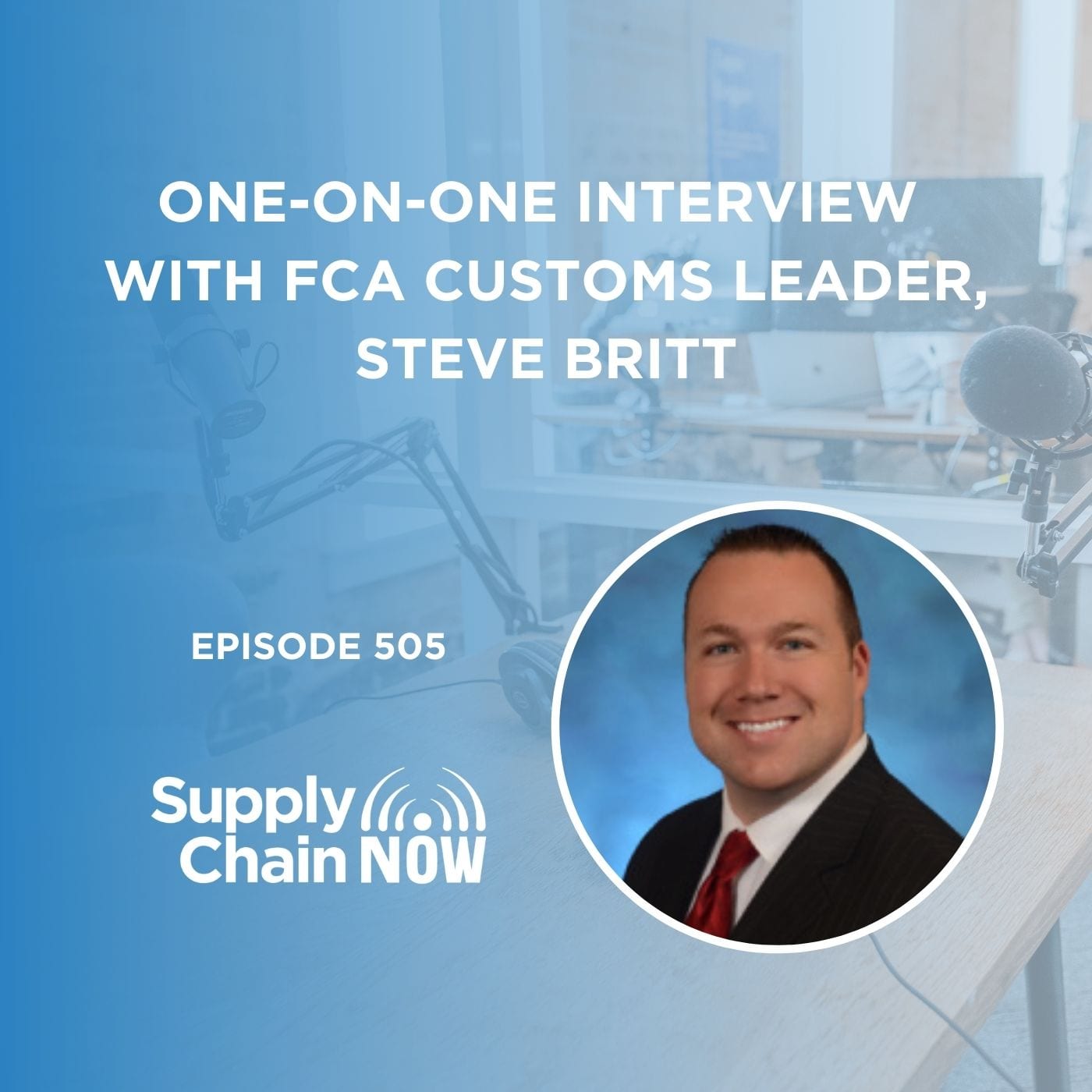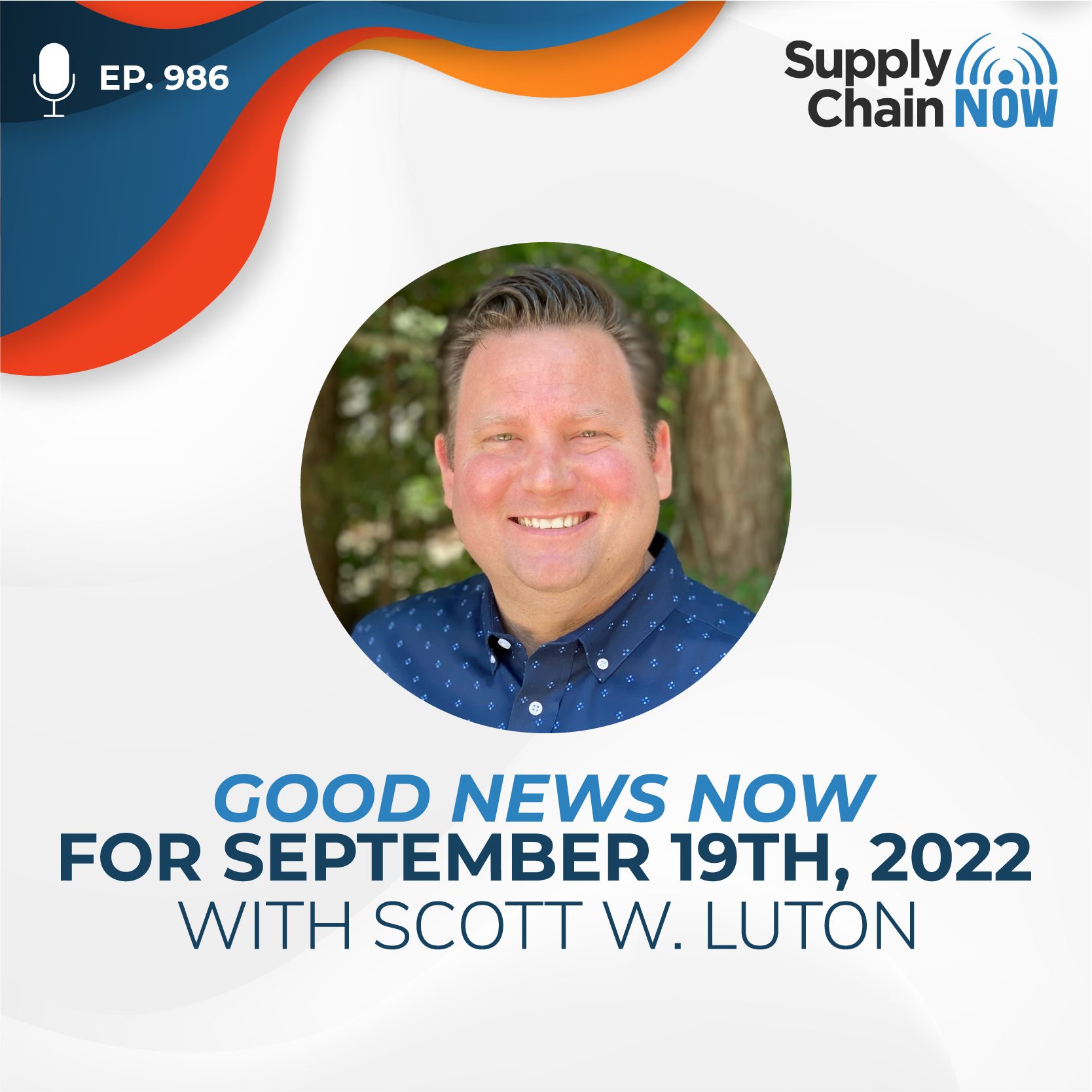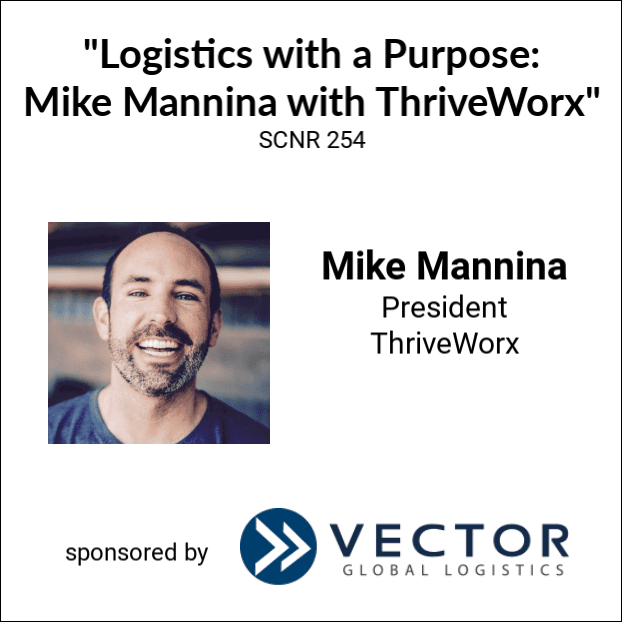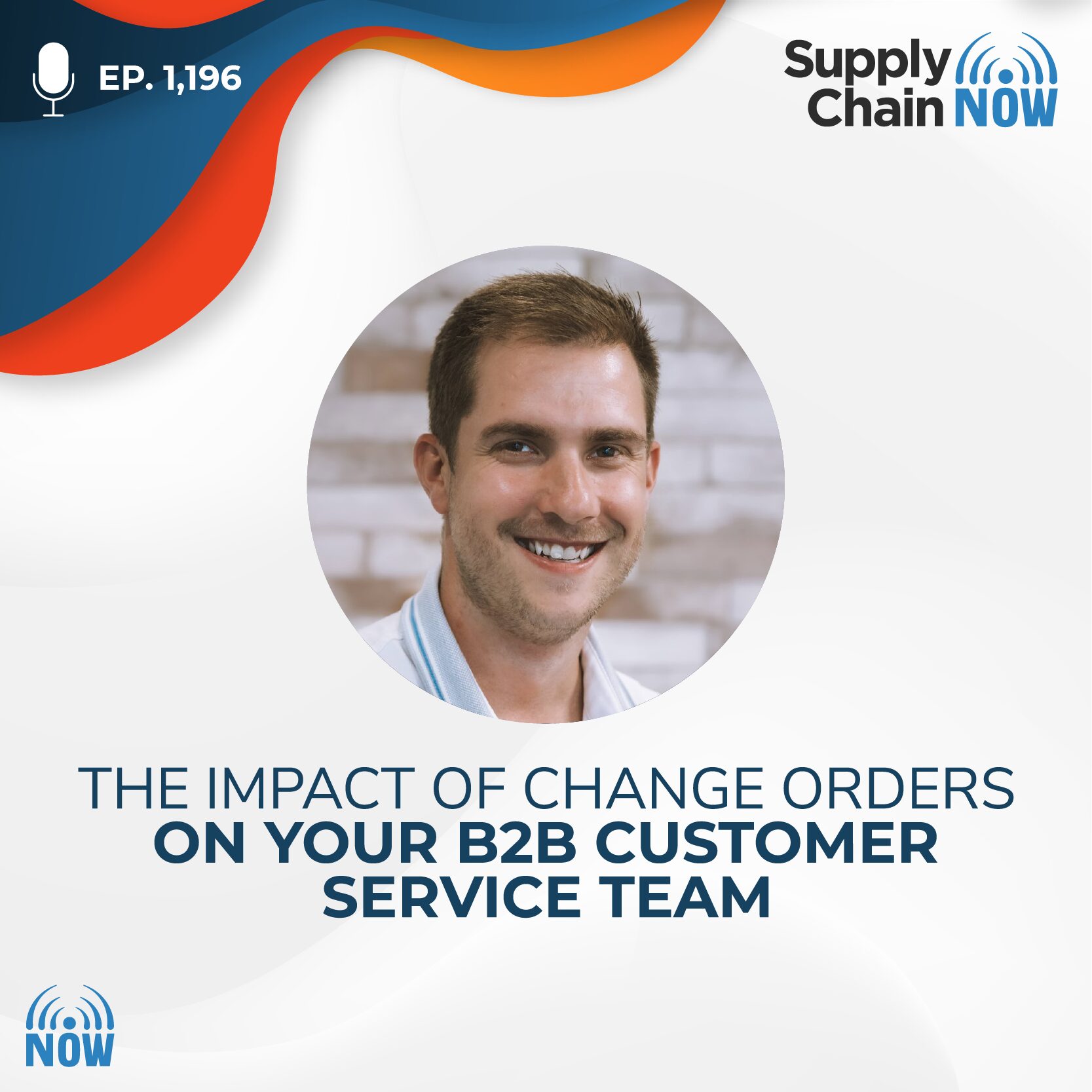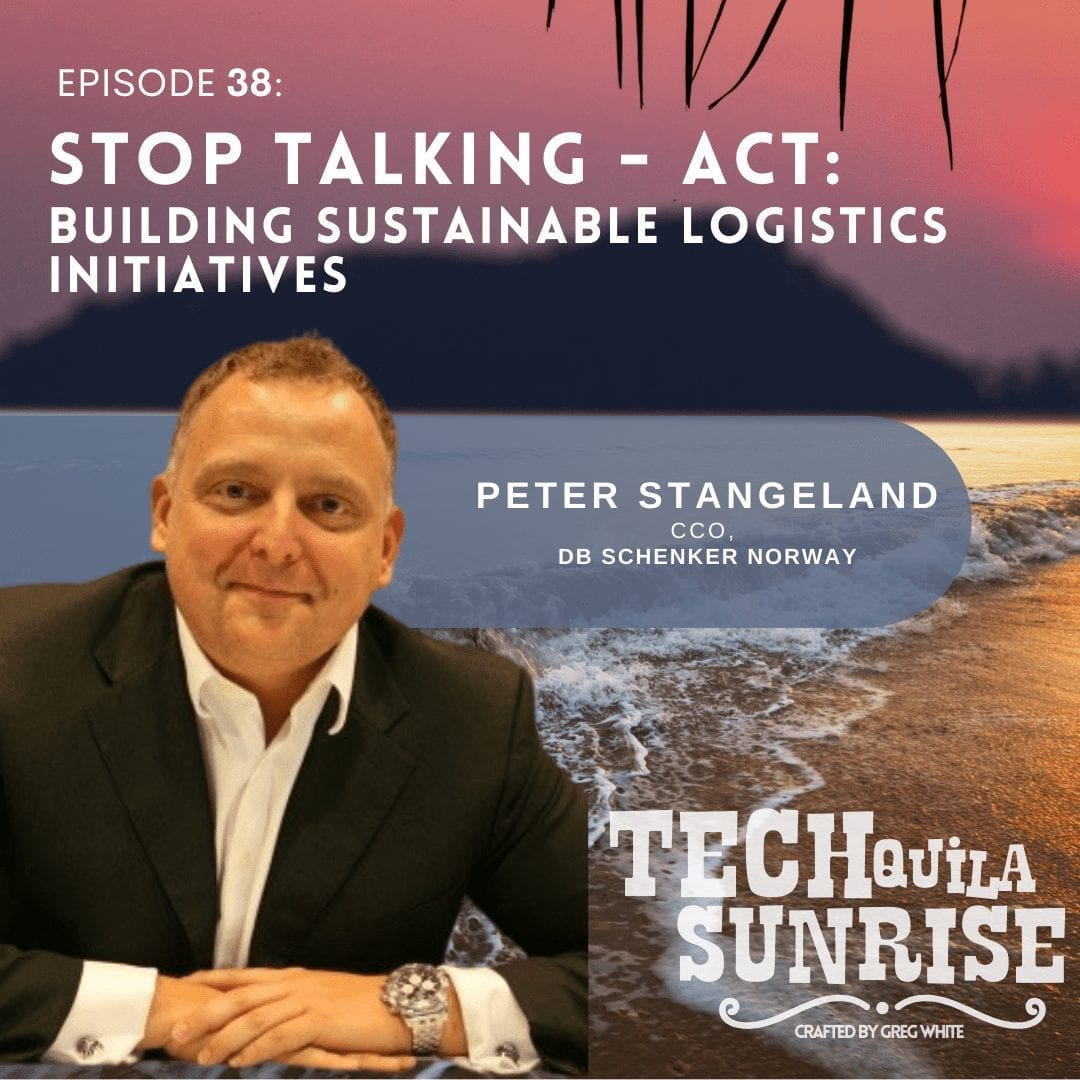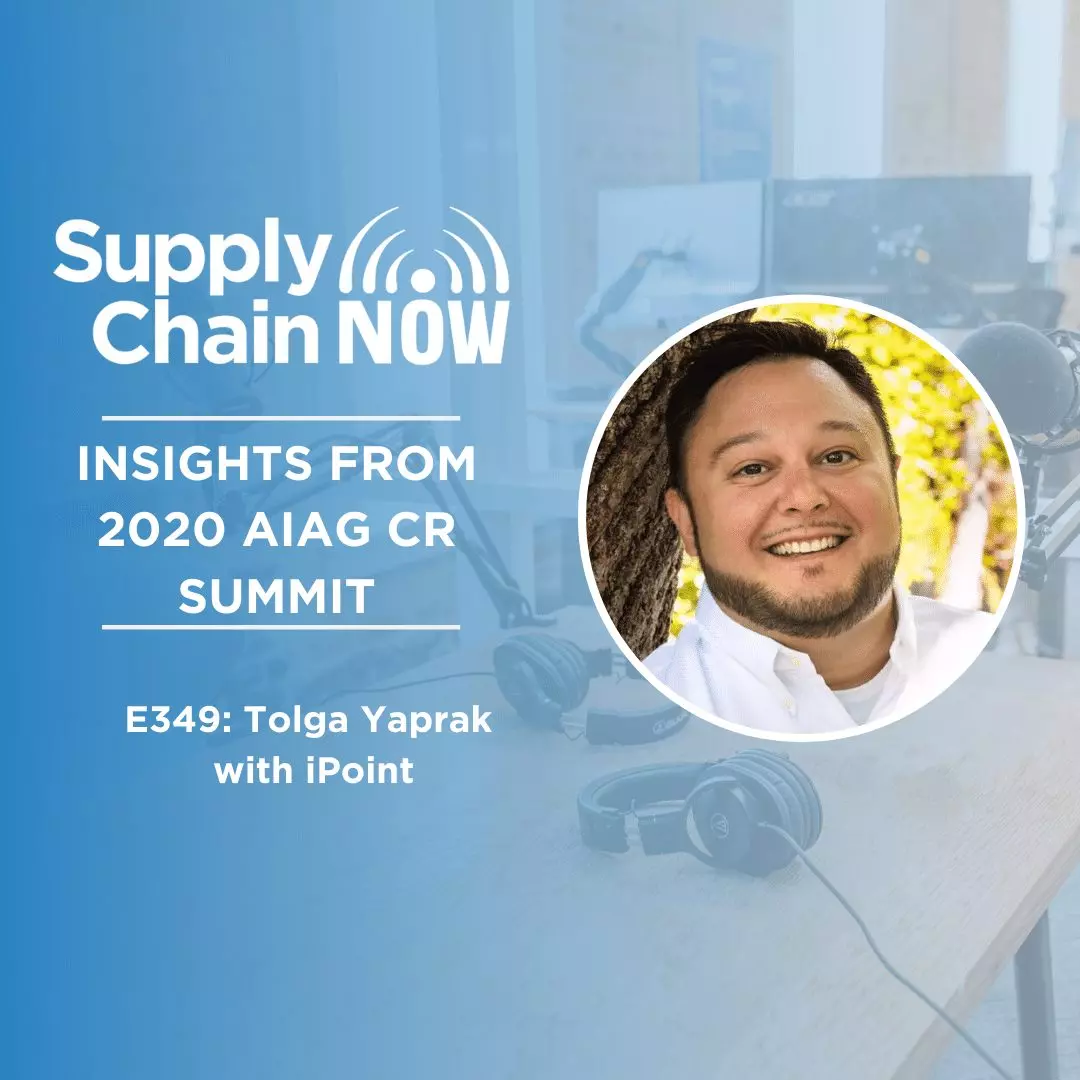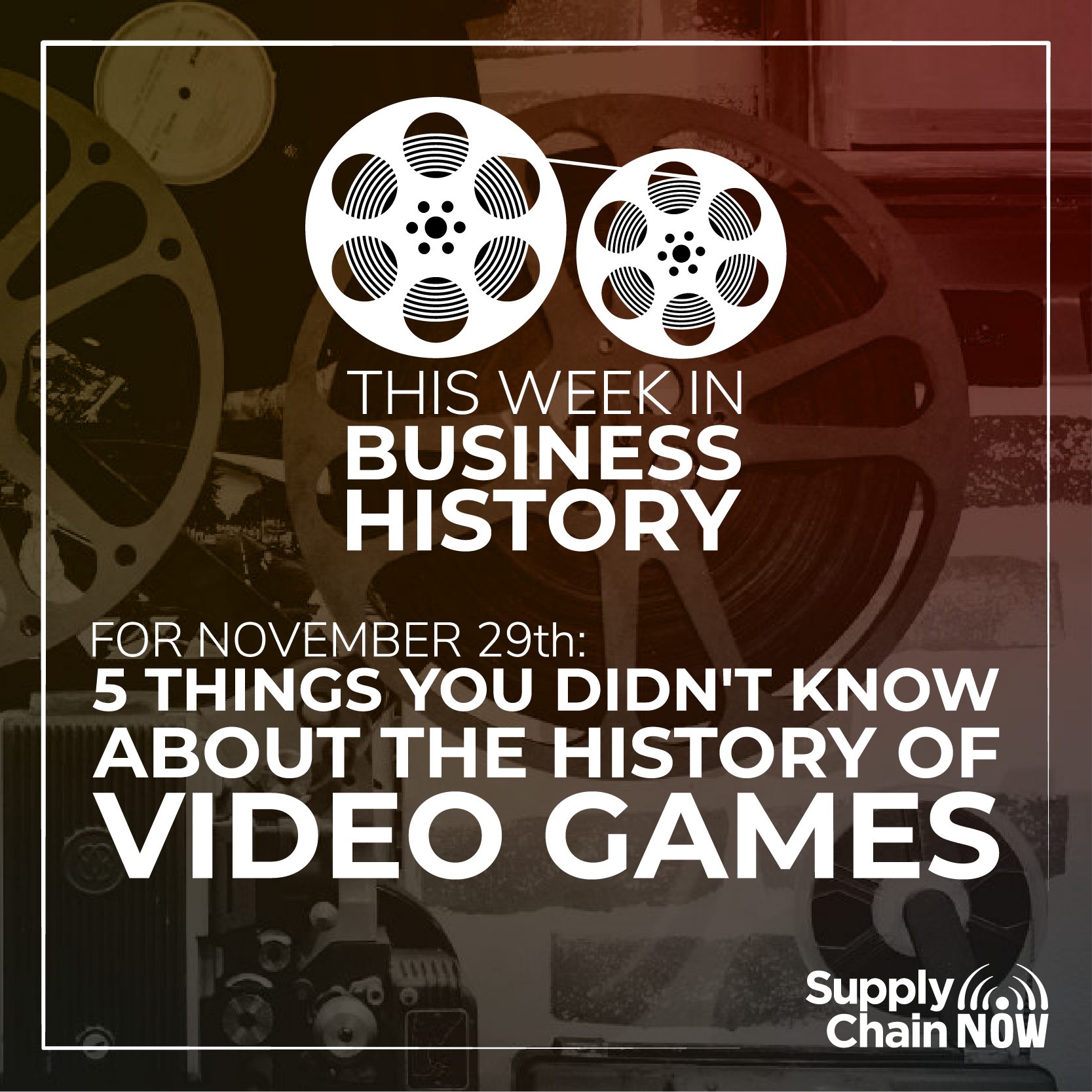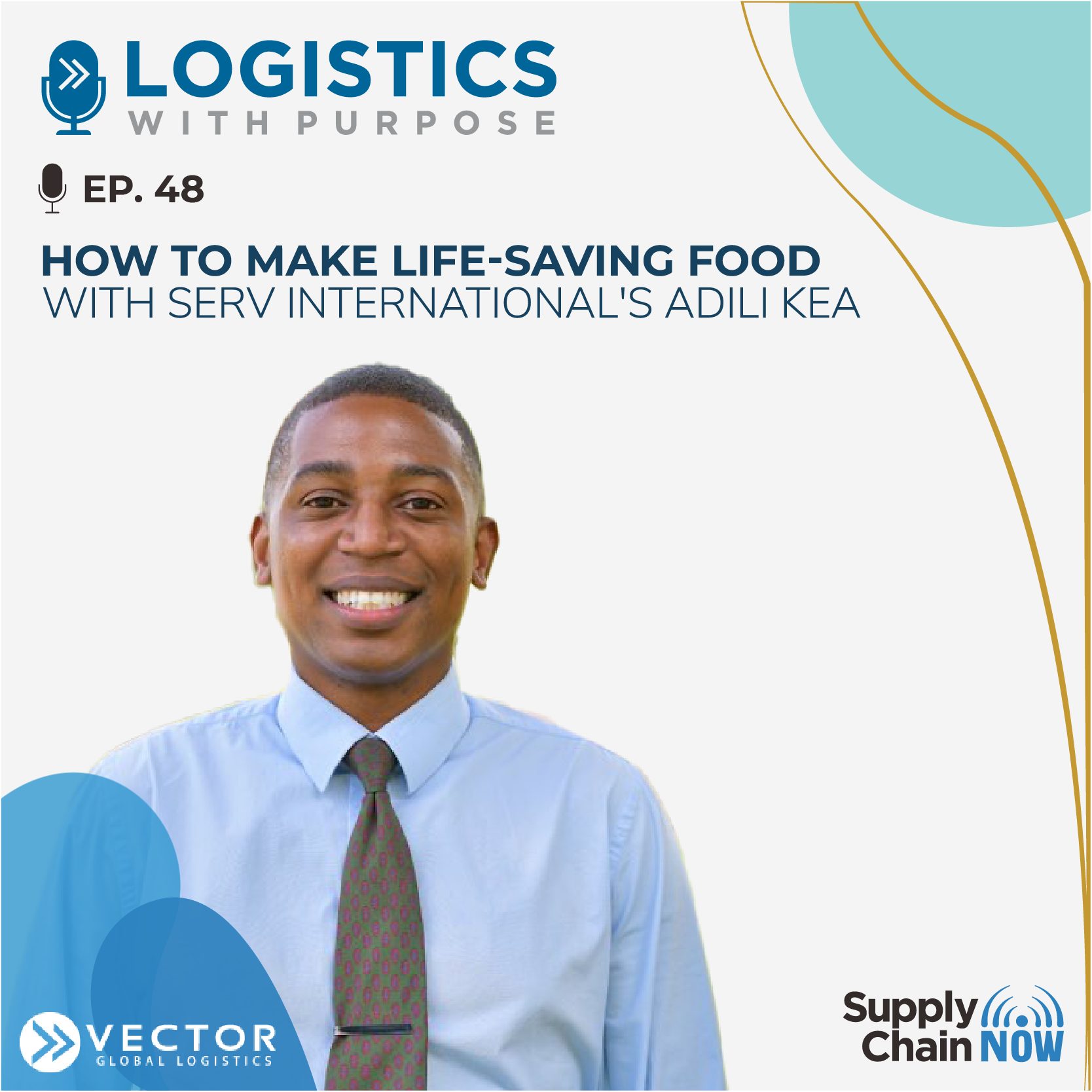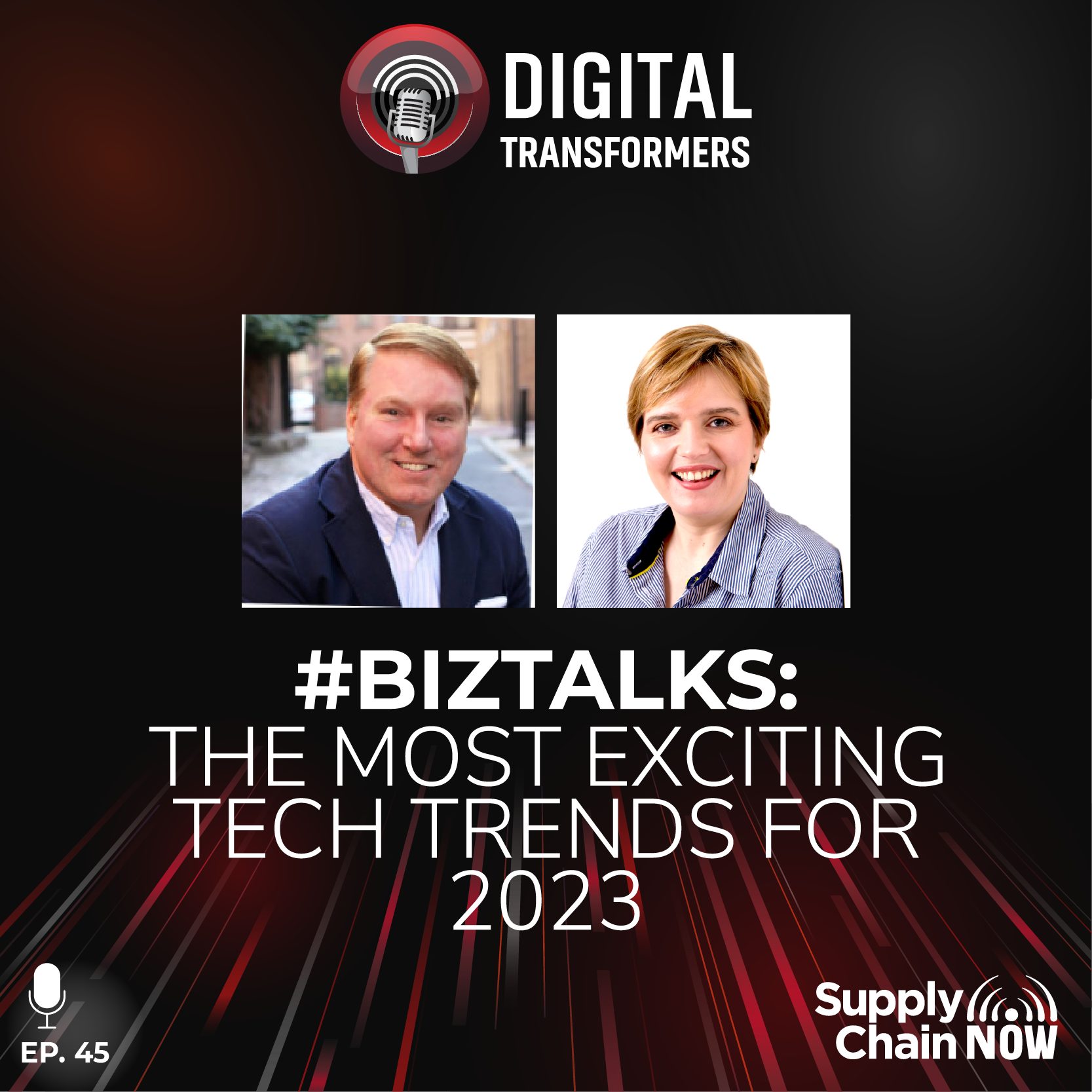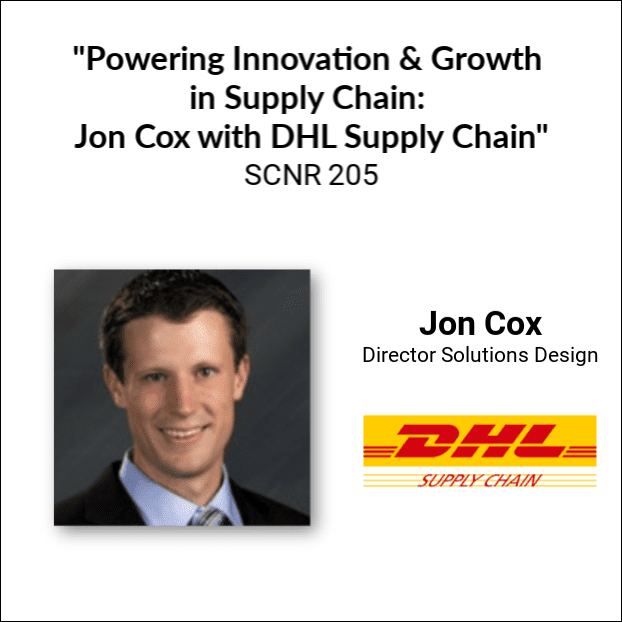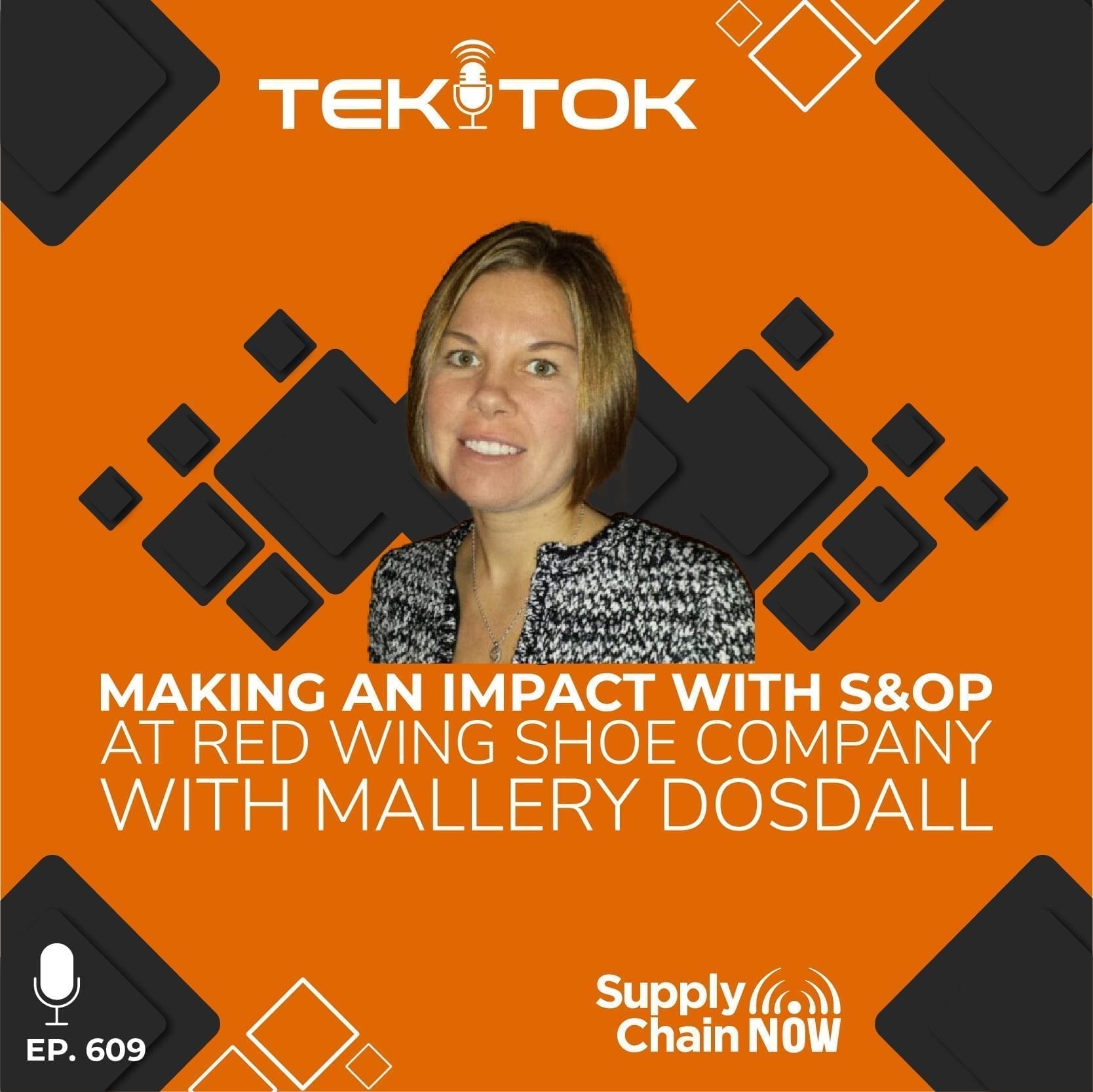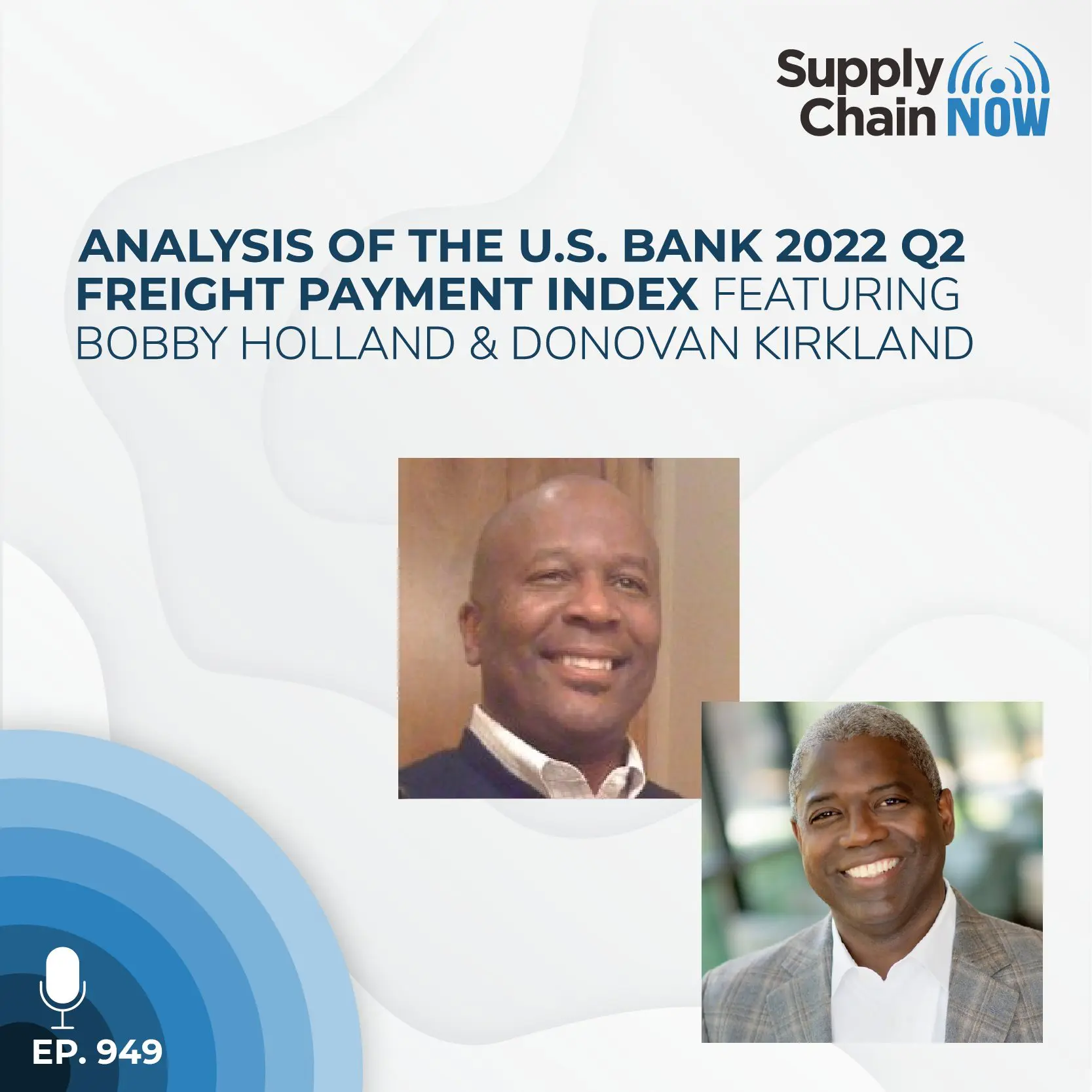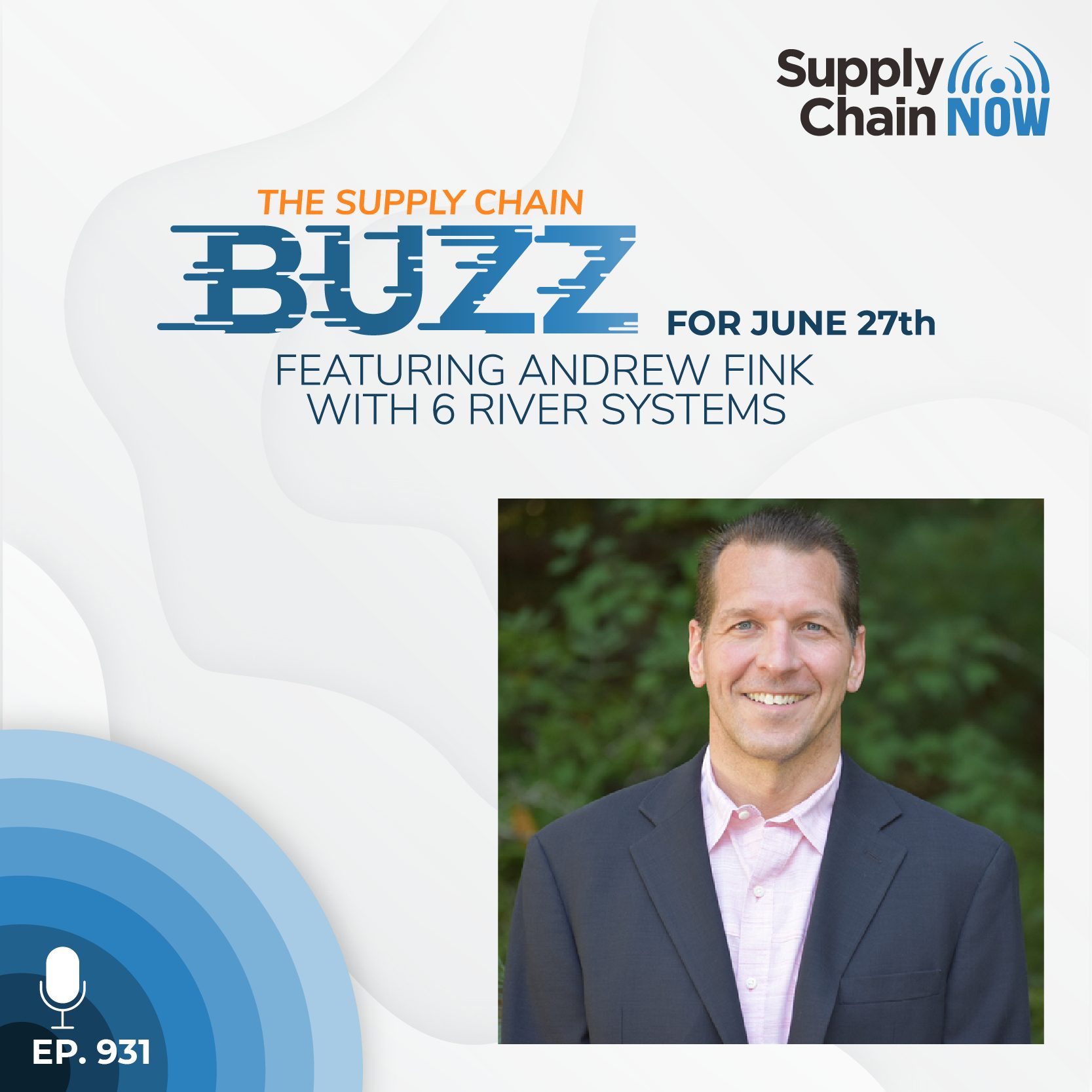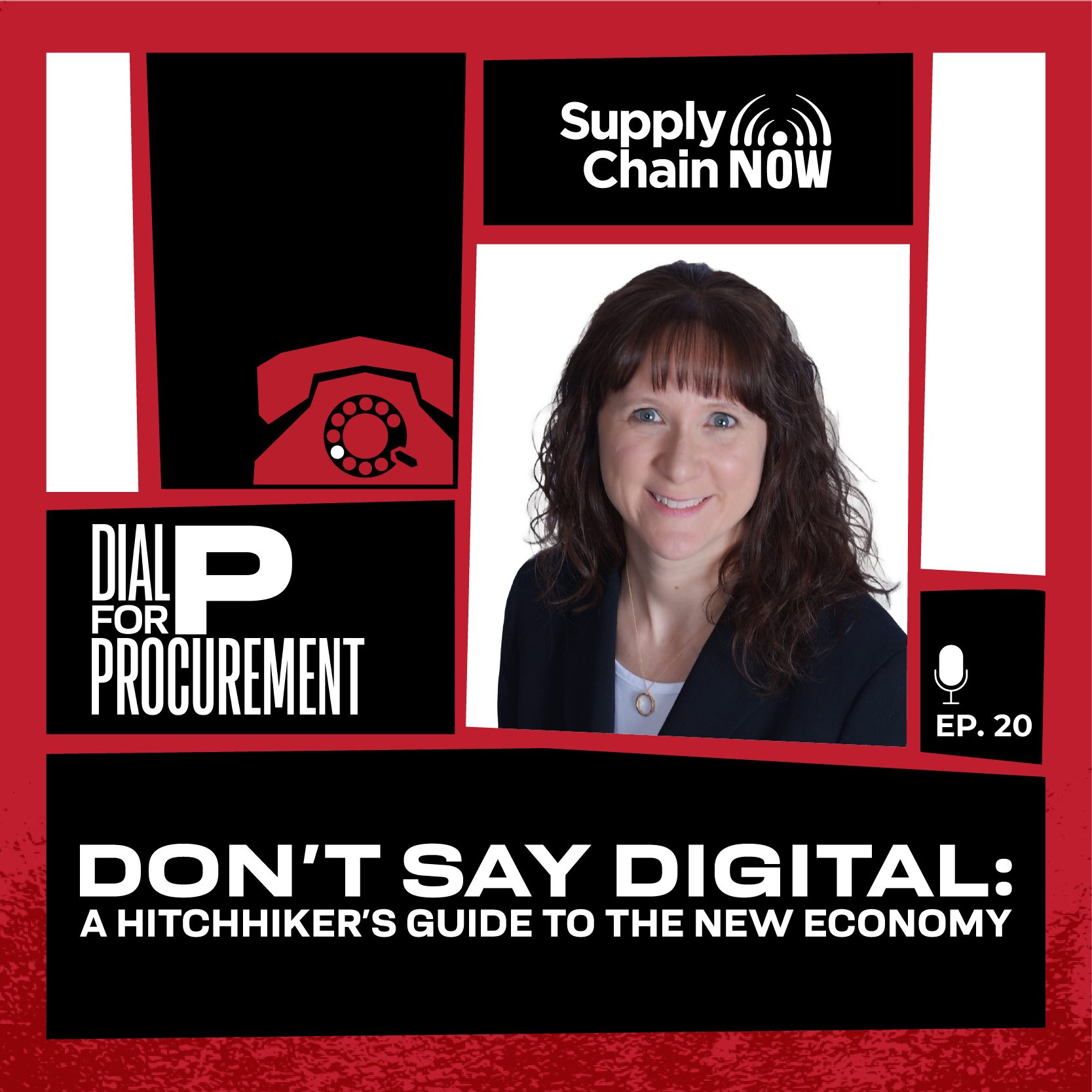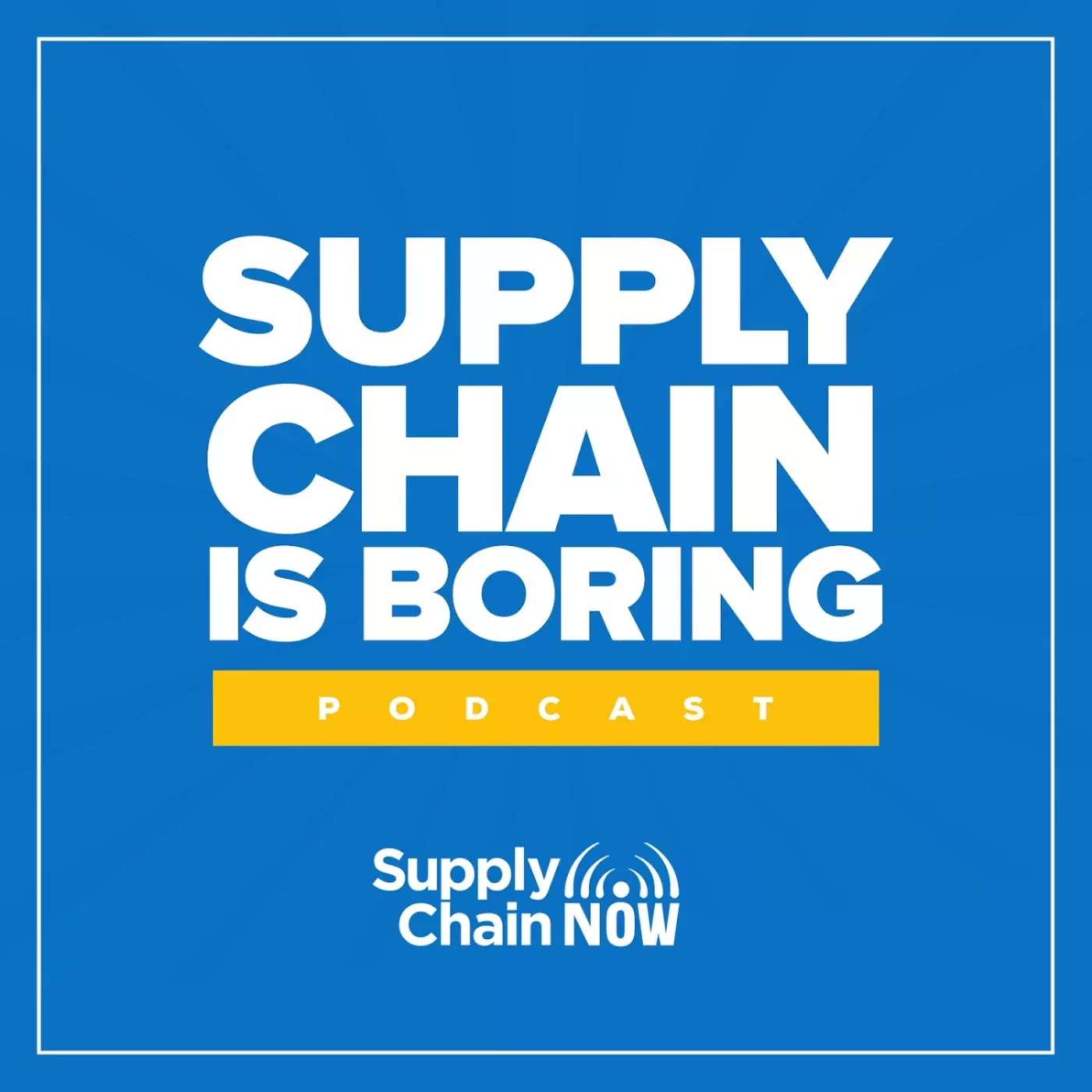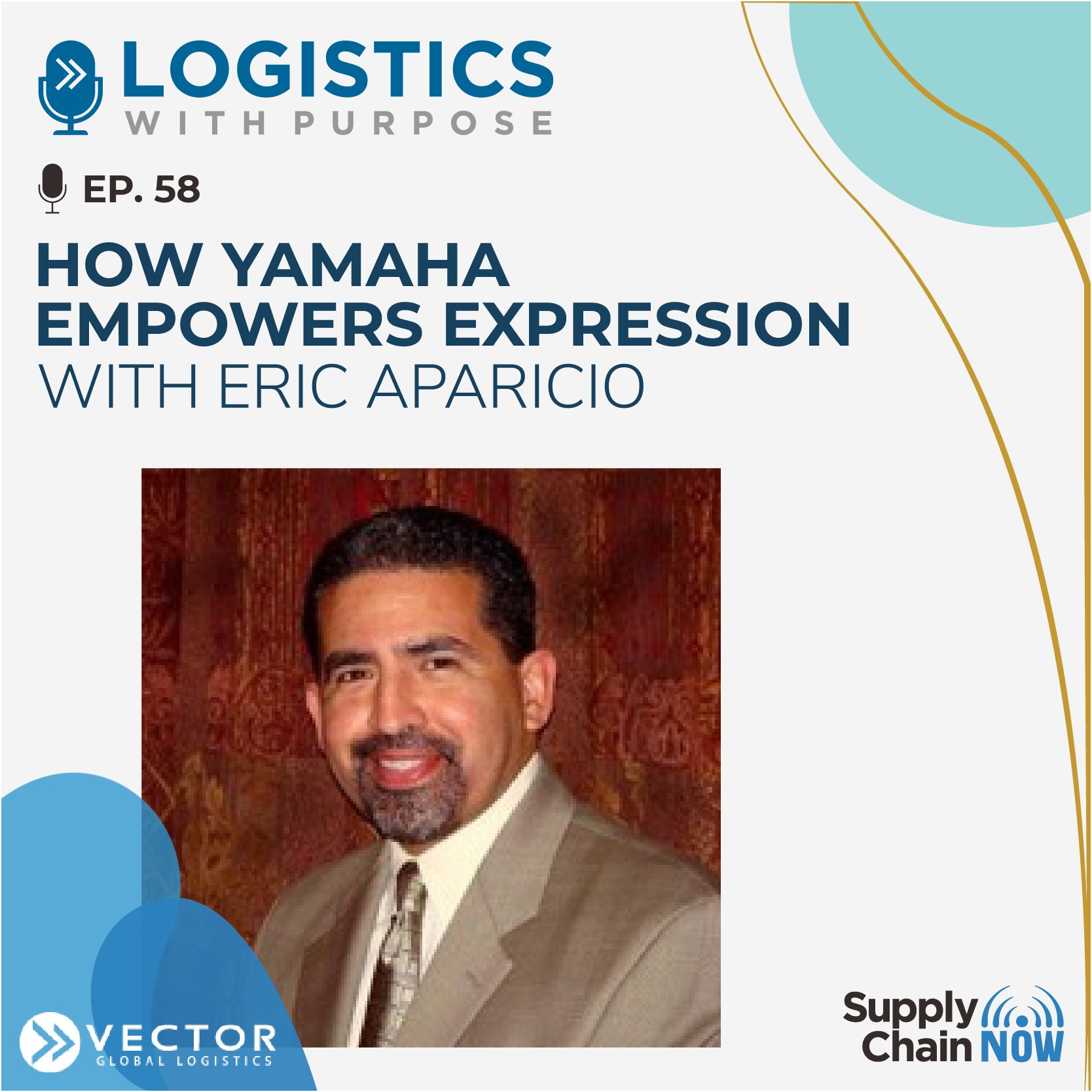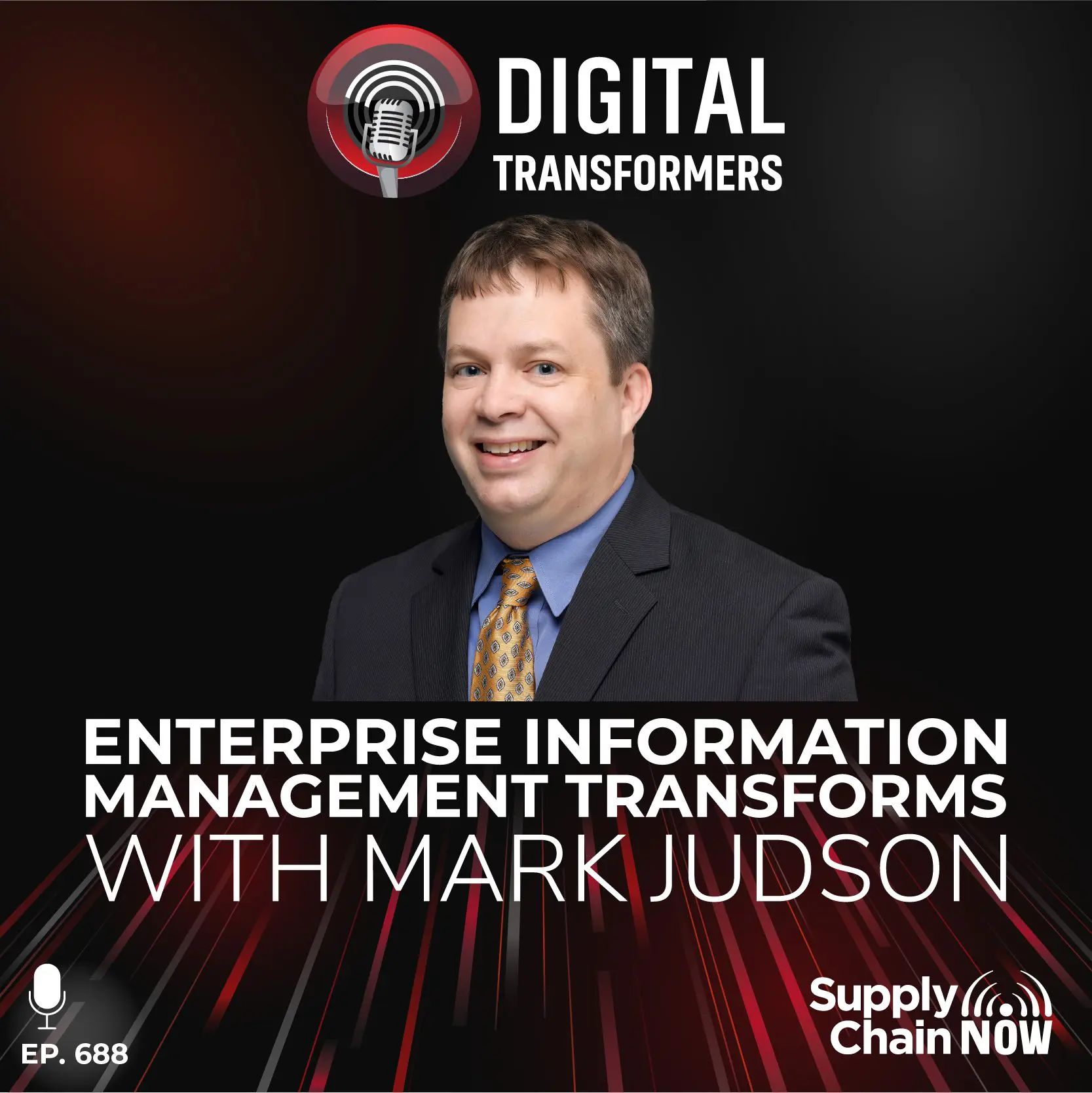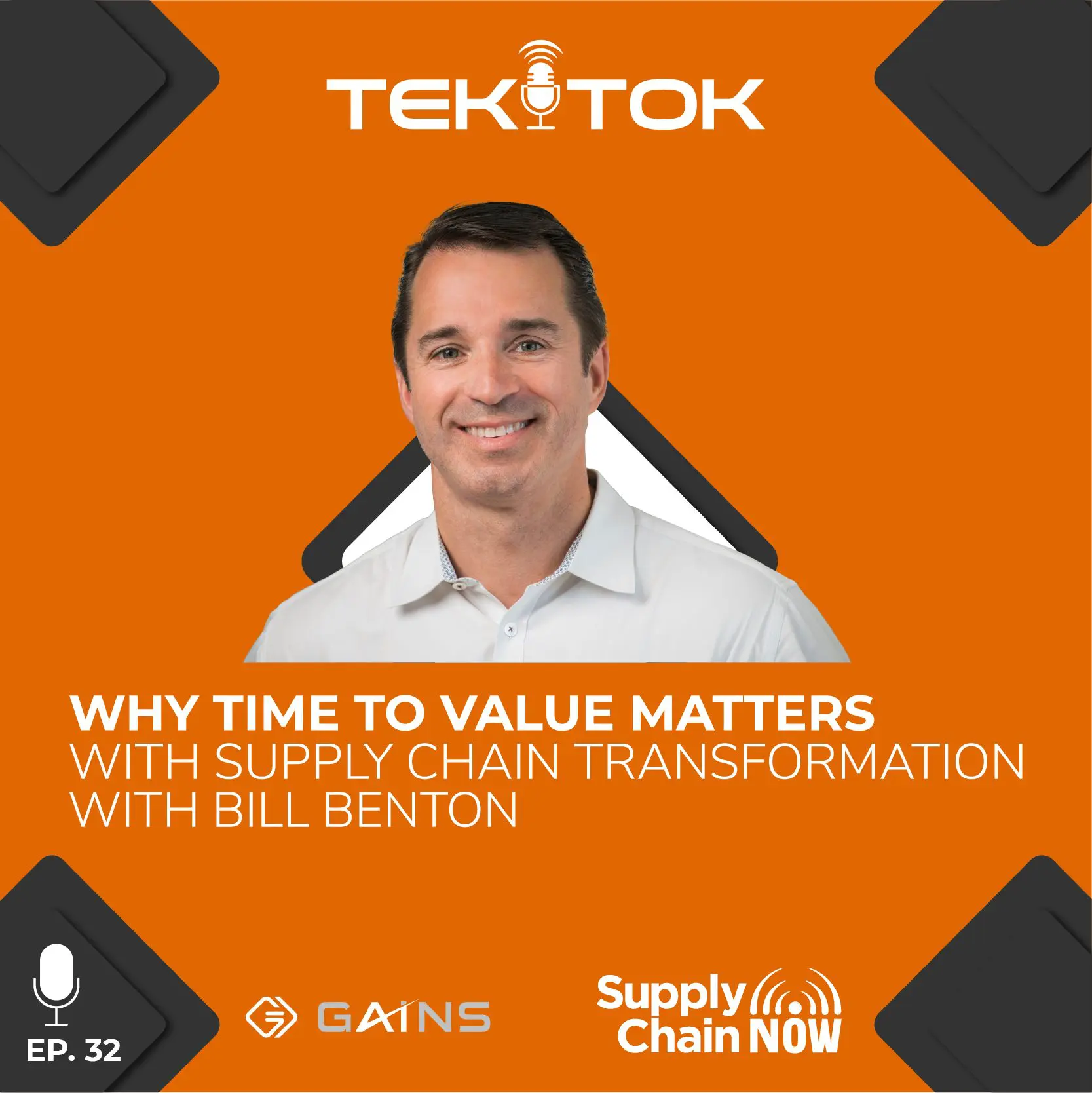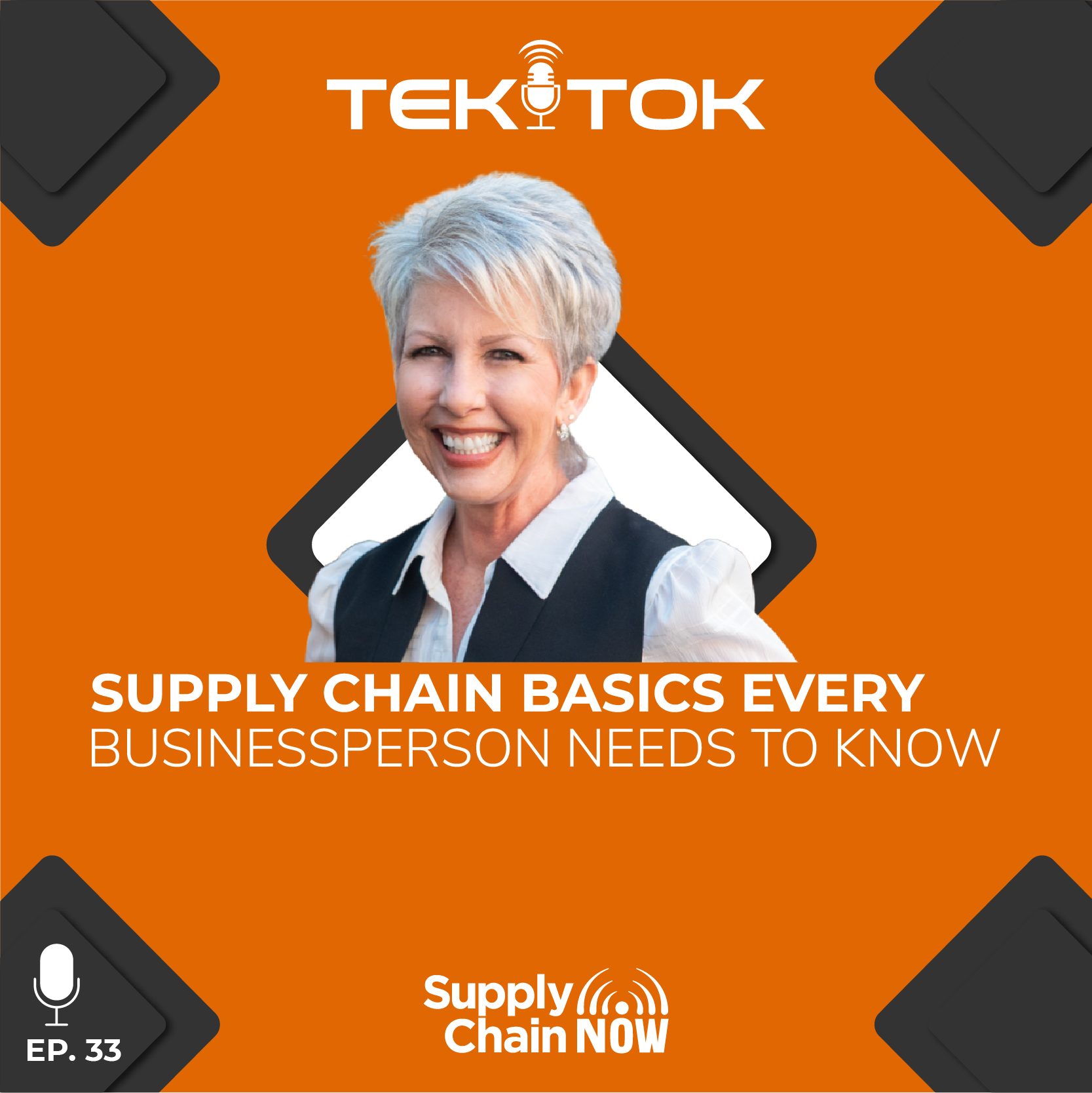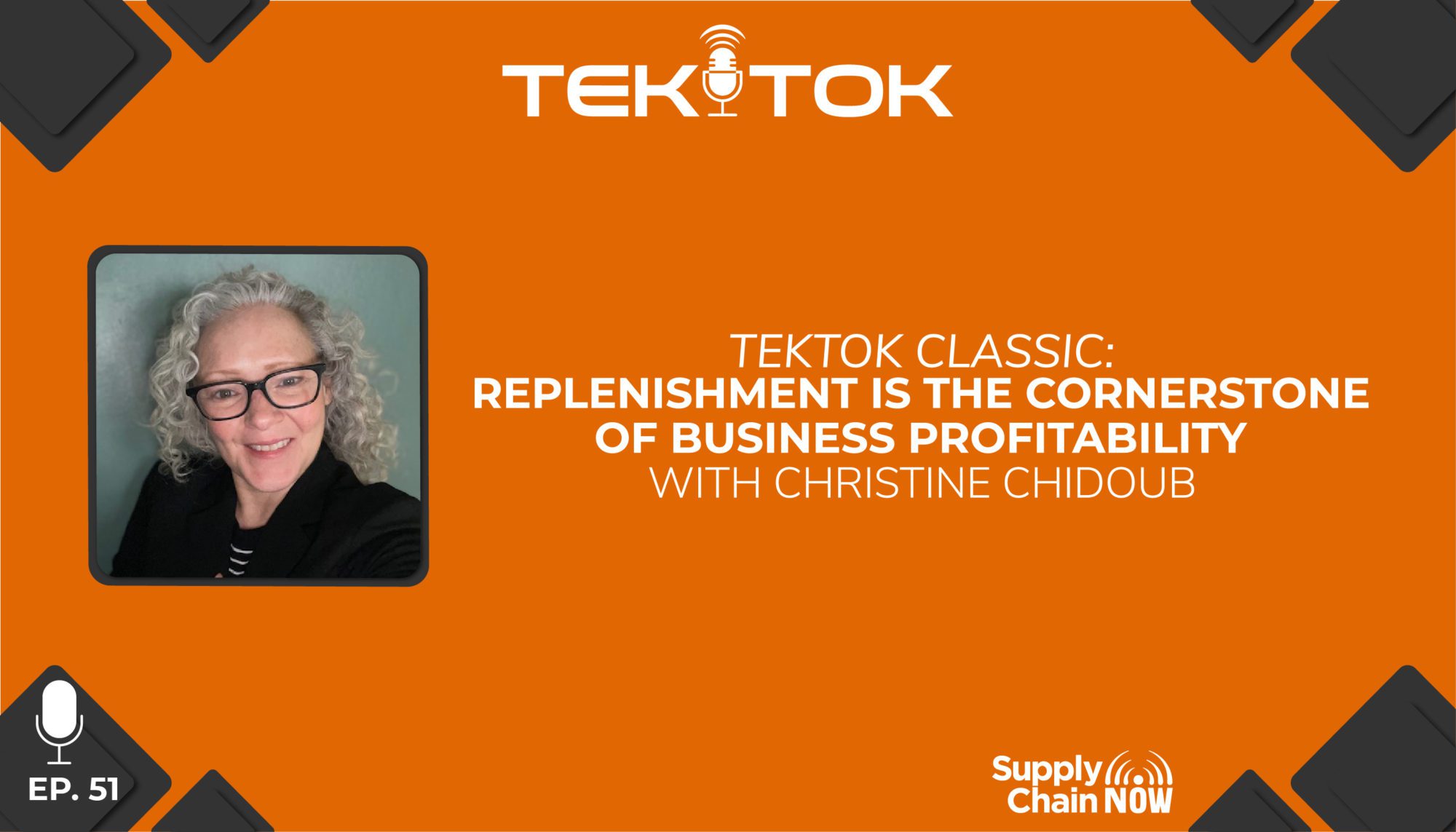
The best thing about replenishment is not having to talk about replenishment.
-Christine Chidoub
Episode Summary
Replenishment is the cornerstone of your business profitability. This is the area of supply chain planning that offers a significant competitive advantage and opportunity for automation. In the simplest form, replenishment is the process of resupplying product that has been consumed or sold. It is for those products that should always be available, where your customers need access to those on an ongoing basis. In this classic TEKTOK episode, listen as Karin welcomes supply chain leader Christine Chidoub to the show to discuss the attributes to consider when calculating replenishment, and how you can drive this important part of your business.
Episode Transcript
Intro/Outro (00:01):
Welcome to TEKTOK Digital Supply Chain podcast, where we will help you eliminate the noise and focus on the information and inspiration that you need to transform your business, impact supply chain success and enable you to replace risky inventory with valuable insights. Join your TEKTOK host, Karin Bursa, the 2020 Supply Chain Pro to Know of the Year. With more than 25 years of supply chain and technology expertise and the scars to prove it, Karin has the heart of a teacher and has helped nearly 1000 customers transform their businesses and tell their success stories. Join the conversation, share your insights and learn how to harness technology innovations to drive tangible business results. Buckle up. It’s time for TEKTOK, powered by Supply Chain Now.
Karin Bursa (01:14):
Welcome back, supply chain movers and shakers! Karin Bursa here; your host for TEKTOK, the Digital Supply Chain podcast. In this episode, we’re going to dive into the topic of replenishment; specifically, replenishment as the cornerstone of your business profitability. That’s right. Replenishment as the cornerstone of your business profitability. Just so we’re all on the same page, I want to make sure we understand what I’m talking about when I say replenishment. This is the area of supply chain planning that offers a significant competitive advantage. In the simplest form, replenishment is the process of resupplying product that has been consumed or sold. It is for those products that should always be available, where your customers need access to those on an ongoing basis.
Karin Bursa (02:10):
So, how do we do that? Well, as you know, we have to anticipate future product needs. How do we do that? We do that with demand planning and forecasting. Then we’re going to produce or procure or simply ship product based on the specific time phase needs to avoid stockouts or to ensure they are always available.
There’s a number of different attributes considered when you’re calculating replenishment. And, you want it to be optimal replenishment and cost efficient. I’m talking about looking at my current inventory levels, considering order lead times, production lead times, guaranteed service levels (usually by customer), and things like minimum order quantities or shipping and delivery frequencies. You can see how these add up pretty quickly for some complex calculations that help you drive this important part of your business. Now, if you’re already doing some math in your head, just relax for a moment.
With us today is an expert in many areas of supply chain planning, but we’re going to focus in on replenishment as the cornerstone of business profitability. We’re going to tap the expertise of the one and only Christine Chidoub, former Vice President of Global Value Chain Optimization with Ralph Lauren. Christine, thanks for being with us.
Christine Chidoub (03:48):
Thanks, Karin, for having me.
Karin Bursa (03:50):
It’s so great to dive into this topic with you. Christine, you’ve got an impressive career that spans just about every area of supply chain planning from merchandise planning to demand planning, inventory optimization, supply planning, of course replenishment, which we’re going to talk more about in just a moment, and then all the advanced analytics that wrap around comprehensive planning processes. Christine, you’ve also been part of a number of supply chain transformation initiatives. So, not only keeping the wheels on the business “bus” going, but actually transforming the way we get from point A to point B. And, you’ve done this on a global basis for one of the most iconic American apparel and accessory brands. So, Christine, what does replenishment encompass in your experience and why is it such an important part of the planning discipline?
Christine Chidoub (04:58):
Well, when I think about replenishment, I think it’s really important to separate out the operational side of replenishing versus the products that are going to be replenished. Those products, sometimes referred to as “core items” really need to be bought in by the entire organization. This will help you get the most out of that inventory investment in these products. Everybody needs to be on board. So, the characteristics of these products really need to be examined because the if products aren’t right — even if you have a great process — it’s really not going to help you that much.
Karin Bursa (05:40):
So, what do you mean by, “if the products aren’t right?” What should we read into a broad phrase like that?
Christine Chidoub (05:48):
There’s a couple of things the entire organization needs to buy into. On the creative side, does the product represent your brand really well? Can it sit with your more seasonal products all the time and really support them in the best possible way? Do your commercial team and your customer partners think the item has year-round desirability? Make sure it has low seasonality. You could have some ups and downs throughout the months, but our customer’s going to be there and want that product for most of the year. So that inventory investment really pays off. Do you have a good supplier who’s very stable? That can help you manage this business. When you’re in a replenishment product category with your supplier, it’s not just, here’s my order, take my order. They are in the business of managing this product with you and you’ve really got to partner with them. And it’s also good to have another supplier that can do it too, just in case something goes sideways — because something always go sideways.
Karin Bursa (06:57):
It all ways does go sideways! But that’s the thing I love about supply chain professionals — they are great problem solvers. At the root of everything, they are people who can think through some pretty complex situations and look at multiple scenarios to solve a problem.
Christine Chidoub (07:14):
Yeah. And most importantly – you’ve got to make sure you got healthy margins in there too.
Karin Bursa (07:20):
And I want to talk about that for just a minute. We want to focus in on business profitability here. But before I jump into actual margin of replenishment products, I’m wondering a couple of things. One, when we talk about products that are always available, give us just a couple of examples of something that’s always available.
Christine Chidoub (07:51):
So, it’s core items. Sometimes they’re called basic items. They’re not necessarily basic in terms of design or manufacturing, they could be a highly designed item but in a basic color, like a white shirt or a navy baseball cap, or a peacoat or a blazer, which is more of a replenishment item, that are really needed all year long and the customers/consumers look for it year round as well.
Karin Bursa (08:21):
Those are great examples of products I could see purchasing in winter, spring, summer, fall, especially when you think of a white shirt, right? I mean, we always are looking for that crisp, clean white shirt in a cut that we like and that we know fits well and meet our needs. So, replenishment products need to be always available and they’re always available because the consumer needs them at different points in time. When you’re entering those service agreements with your customers, so a retailer in this context, they want confidence that those items in the sizes needed are going to be available. So, we’re not just talking about one-size-fits-all garments. Certainly, hats and different accessories may have fewer sizes. But when we think of shirts, especially men’s shirts, for instance, that SKU portfolio or size portfolio can be complex.
Christine Chidoub (09:29):
Yeah. It adds up quickly. Once you add in some dress shirts or pants in men’s wear, then those SKUs really explode. If you look into the breadth of sizing in women’s wear, children’s wear can be highly complex when you think about toddlers and four to six and as kids grow and you offer the same types of products. So, when you start to add in that SKU complexity, then you really do need the support of a good planning system to keep all of that data straight. So, that you can manage the replenishment and not chase the data around all day.
Karin Bursa (10:06):
Good point. You started to dive into the topic of margin and I want to go back there. Christine, you mentioned having some good margin associated with these replenishment products. Tell me a little more about that.
Christine Chidoub (10:22):
Once you’ve got the core product, you’ve vetted all their characteristics and everybody’s on board, and you’ve got a good replenishment process set up, now replenishment can be your best friend? It’s going to be your low maintenance best friend that can almost itself. You can really gain a lot of revenue and profitability and drive that through these replenishment products without paying a lot of attention to them day-to-day from a top-down standpoint. Once you’ve established and verified your replenishment process, you’ve got to do periodic check-ins that are always useful to make sure you still got the right products, that you’ve still got that right vendor profile, that you still got that need out there. But you know, once you keep doing all those checks, a good planning system can keep running and you don’t have to expend significant time or energy of the merchants or commercial partners or supply chain folks to keep reexamining it. Right? You’ve got it. Now, let’s it run.
Karin Bursa (11:28):
That’s a really good point. This is an area where supply chain planning solutions (digital supply chain) can add extraordinary value. We have more history associated with replenishment products, which typically means that the demand model, the forecast, the inventory policies are proven. You’ll have a higher level of confidence around the repeating cycles of need (demand) in the marketplace. In fact, Christine, I see replenishment as an area that is ripe for automation. Maybe you’re not comfortable with 100% automation, but maybe you can look at setting performance criteria to get pretty high performance (80-90%) with very low planner interaction. Would that be a fair statement?
Christine Chidoub (12:20):
I totally agree. And, I think replenishment in these core products is the place to leverage automation. If you have an organization that’s maybe a little bit shy of these types of analysis, then fact-driven decision, it’s a good place to introduce it. Because you can see that data coming together very quickly and you can visualize the patterns in a way that everybody gets it. It really adds to the trust factor to let this process run, because the more you tinker with it, the more you can mess it up. So, you really want to have that stability of the data and the stability of the process so that you can get the most value out of it and leverage automation.
Karin Bursa (13:03):
Christine, when you have replenishment conversations with the C-suite, with the executive team, what are the two or three things they need to understand about replenishment and how it contributes to that overall business profitability?
Christine Chidoub (13:19):
Well, it’s really looking at the metrics. So, making sure that you’ve got stable and consistent key performance metrics that can really drive that analysis and you can show and anticipate, where you’re going to see trouble. There’s really not one time where I could think of where, when a problem occurred that we didn’t see it coming…if you had looked at the data. So, C-suites executives expect you to be looking at the data and finding those breadcrumbs so that you can anticipate a downturn in demand, so that you can pull back on your inventory planning. Or, if you can anticipate where you can add stock/inventory, if an item is performing better than you thought. Getting those strategies uncovered earlier allows you to fill in those gaps. Replenishment can really add to your customer loyalty and build that brand loyalty because they know they’re going to go to the store or go to that website and they’re always going to find the item that they want. While they’re shopping for those seasonal items, they’re going to refresh, you know, their replenishment or core products. So, you want to make sure that you’re getting that customer satisfaction and that you’re anticipating any problems that may arise before they get to the C-suite.
Karin Bursa (14:41):
Great example. You know, I’ve got two boys. If I’m buying them a new pair of khakis, I’m going to get them a couple of shirts to go with it along with a few additional items. I may go to the store (or website) for that pair of khakis and then fill my basket with some other items as well. And when I know the fit is good and the quality is good, it helps to make those decisions very straightforward and easy. So, I totally get that.
Christine, you’ve led a global supply chain planning team for a number of different areas of the business. But when you think of some of the important supply chain leadership roles, what’s the one leadership strategy that can help make a difference quickly? Like, what one thing can our listeners do or try that’s really going to amp up the overall performance?
Christine Chidoub (15:50):
Well, I’ll tell you a little story, Karin. In large organizations, they sometimes perform annual surveys, where you get a lot of valuable feedback. All the employees get to participate and all the managers at every level get feedback on how the company is doing. How they’re doing as a manager. In those surveys, there’s typically a section about employee empowerment and effectiveness, right? Do the employees feel empowered to do their job and do they have the resources, knowledge, and technology to effectively do that job? I always got high marks on that series of questions. I was in the right quadrant with my teams and I took a lot of pride in that. The reason why my teams felt empowered and effective is because I made a conscious effort to connect the work that they do every day to the goals of the organization. Right? They did not feel like they were in a silo with no information.
Christine Chidoub (16:59):
And when I say the goals, I don’t mean the lofty vision statements or mission statements that many organizations have. Those are valuable. But, I’m talking more of those micro goals you’re trying to execute to every day. Do you want to increase your inventory turns? Do you want to reduce end of season markdowns? Do you want to find sustainable solutions for packaging? Do you want to leverage your free trade zones differently? Whatever those goals are, I’ve shared them with my team so that they felt connected to how the organization is going to be operating and connected to how their role fit in with those goals.
Karin Bursa (17:50):
That’s really important. And I think that works in every planning discipline. Understanding what you’re doing day in and day out and how it connects to the brand promise of the company that you’re with, how it contributes to the growth and profitability of the business as well. There are hard days in every business, right? And then, there are days that are a lot of fun and celebration, but we all need to get connected and understand how we can really stay focus in moving the business forward in the most efficient and effective manner possible.
Christine Chidoub (18:29):
It doesn’t mean that you’re operating unilaterally or not trying to build consensus. Right? But it allows you to frame up issues and solutions with those goals in mind. So, you’re looking through the same lens and you don’t have to spend time, energy and effort to get everybody on the same page again and again and again. So, sharing those goals and communicating those goals really connects people to their work and connects people to personal success, as well as team and overall company success.
Karin Bursa (19:07):
Christine, I think that it is imperative to describe what good looks like. What is good performance and how is it measured? It’s not just the metric or just the number, it’s understanding why the number allows us to do some other things throughout the process.
When you think of the number of teams that you’ve led, Christine, I think a number of those teams have been global as well. Right? Long before COVID and the virtual world, you developed some strong virtual skills and virtual leadership as well. How does that strategy translate into tangible business results? Can you give us an example or two?
Christine Chidoub (20:00):
Sure. It really streamlines decision making if you know what the goals are and you’re looking at issues that come up on a day-to-day basis. Let’s say you want to reduce end of season markdowns. So, on the manufacturing side, maybe someone’s coming to with an opportunity to place an order for the seasonal item, right, really high demand, unanticipated. Can we get more? Of course, the answer’s always, yes, you can get more, but when’s it going to arrive? Is going to come in at the end of the season? If so, that is a markdown waiting to happen.
Christine Chidoub (20:43):
If you got that goal in mind, right, if you got that in the back of your mind, then it helps you to not push back necessarily, but to say, “here’s what can happen.” Here’s a sequence of events. Yes, we can do it. We can air it in. Here’s the cost of that decision. Maybe, it’s better to sell out instead of chasing that demand. Sometimes that doesn’t happen. So, if you’ve got those goals in mind, then you can make those decisions or at least frame up the options (scenarios) for the team. Another example could be on packaging. If we want to reduce our packaging and you see things coming through on the design side that really individualize the packaging for similar items, you can push back and say, “hey, is there a way that we can make this packaging more universal? Can I use a single type of packaging for these like items so that I’m more sustainable in this solution and not having to order specifically for each item?”
Karin Bursa (21:54):
Oh, I like the sustainability angle. And I know it comes into play with labeling as well, right, in countries where product is being offered that there are a number of ways to approach that so maybe you do one label that can actually meet the needs of multiple countries or multiple trading zones as well. I do remember there was a time in the industry when apparel labels seemed like a notebook sewn inside your garment.
Christine Chidoub (22:39):
Those rules change pretty quickly. Today, there are some QR code solutions or smart labels that contain all that data that would normally be in that book. And it’s always evolving and looking for technical solutions for those physical problems can sometimes be the answer as well.
Karin Bursa (23:03):
Christine, another area that perhaps people don’t always appreciate is synchronizing demand and supply. Demand to supply translation is not always one for one, right? We often have minimum order quantities (vendor minimums) with our manufacturing or our sourcing partners. So, eventhough I might have demand for 100 units, I might have to order 150 units. Is that correct?
Christine Chidoub (23:39):
Very true. That’s why supply chain planning systems can help pull from the future, you can see what those longer range plans are anticipated to be in the future. And, you can pull some of that forward so that you can make your minimum order quantity or make your process more efficient because going back to the beginning of our conversation, the organization has bought into this item. So, now I feel empowered to make this decision, to pull these units forward so that I can get the best margin on this item and not pay a higher price on a lower quantity when I know I’m going to just reorder it a month later or whatever that cadence is. It ties it all together. If you’ve got the right product, you empower the people to make the decisions about that product, then it smooths that decision-making process.
Karin Bursa (24:36):
When we think about core products, so these replenishment products – I’ve called them a couple of different things. You’ll have to, excuse me. I think I’ve called them always available. I’ve called them basic products and replenishable items. The business wants these products in our portfolio. They’re not just a seasonal item or a fashion item. Fashion is often one and done, right? I’m going to bring that in for a spring selling season. And when it’s sold out, it’s done, at least in this flavor, cut or color. It may come back in a slightly different silhouette in the future. But we have the opportunity to think about replenishment items differently. Walk me through just a couple of things to consider when optimizing demand and availability around these always available items.
Christine Chidoub (25:52):
Well, first I would say, yes, there are core products and there are seasonal or fashion products. But they don’t exist in silos because very often the components are shared across both so that you can make those negotiations or those decisions or evaluate risk based on, is this component, this fabric, or the buttons or whatever it is that you’re engaging with, can they be used across multiple products, even if some of it is replenishment and core and some of it is not. That’s your first area of optimization. Can my components be shared? Can I reduce the risk of this decision by ensuring that I’ve got a home for everything? If one thing goes sideways, I’ve got, you know, plan B over here. So, that’s the first thing that I always looked at, where else can I use this? Making sure that I’m looking at all the angles.
Karin Bursa (26:59):
That that’s a great point. So, even in apparel items, which tend to have a smaller bills of material than we may see in high tech or durable goods, there is still an opportunity for commonality across different items or different product families when you break it down and look at those components, a fabric or buttons or finishing and fasteners for the different goods.
Help me understand, Christine, does every season start at zero or does every decision start at zero? Or am I always getting incrementally better when I focus on replenishment?
Christine Chidoub (27:44):
I don’t think every season starts at zero. Certainly, replenishment does not. In replenishment, you don’t actually talk in seasons. In replenishment, you have to talk in smaller increments of time or different increments in time because it affects your bottom line in different ways than a seasonal product may. In my experience, thinking about replenishment in terms of fiscal months or fiscal weeks and periods is a better way to look at it rather than seasonal. Now you want to marry it up with a seasonal thing so that you can optimize any usage across the different products, but the trend and the analysis of replenishment is not across the season. It’s across months. You could be looking at replenishment on a December through March basis. And that could be part of holiday and cruise, or it could be part of spring and summer, right? So, you match up the months, but those trends happen across the months and not the season. Thinking of them differently than seasonal products is the way to go.
Karin Bursa (29:04):
We’ve been talking a fair amount here about apparel and accessories, but these replenishment techniques are very important and effective in a number of different industries, including food and beverage where we’ve got core products or core availability that’s on the shelf. And then, it may change with some seasonal items that come in and come out. We see it in a number of different consumer goods and durable items as well. Have you seen that in your career?
Christine Chidoub (29:43):
Well, the auto industry is a huge replenishment category. There’s lots of industrial products that you want to have those components readily available. And there’s lots of industries that do that leverage replenishment. They can leverage the same types of core components across multiple and different final products so that they’re really reducing the risk of making that investment in those core components ‘cause they can make different things out of them. But I think the replenishment conversation is universal. You can look at any industry, soft goods, electronics, and you can find a component of replenishment in that industry somewhere along their value chain. It may be further up. It may be downstream. But there’s something in almost every industry that you can apply some of these replenishment principles too.
Karin Bursa (30:40):
How do we identify a product that may be a good replenishment candidate? What are some of the things that might happen where we consider pulling that in as a core item?
Christine Chidoub (31:03):
Yeah. I love that question because you find those winners. Right? The consumer has spoken and you want to now introduce that as always available. It could be a certain fit of a pant or a shirt and you’ve got fabric that you are using for different fits already on replenishment. You can leverage that and quickly move into that new item. That’s happened, many times where we sort of borrow those components to support a new item that we didn’t anticipate. And that’s always fun when you find those things. But, I would go back to examine the characteristics of the product. Make sure that they meet your criteria and don’t get too “drunk” on the percentages. Right? Because you’ve got a lot of folks that get emotionally tied to things like “X percent” sold. You’ve really got to examine that means. How many did they actually have in that store? Before we get a little too ahead of ourselves because that can trip you up. If you’ve got the wrong item on there and you make that inventory investment. You react without the hard facts or a long enough lens. You want to react too quickly, but you want to make sure that you don’t over invest.
Karin Bursa (32:24):
Christine, what you just said is important. I would imagine that sometimes in apparel and retail, we get really passionate about a product or design. We get really connected to the products that we’re planning or the products that we’ve designed or introduced into the marketplace. I think one of the important things that certainly you’ve experienced in your career is stepping back and being objective and letting the data speak. Tell me how that manifests itself in leading a team or responding to enthusiasm that might be coming from other areas of the business.
Christine Chidoub (33:11):
Well, you know, I used to have a nickname. They called me Christine Calculator. Right? It’s easy to get a lot of passion and enthusiasm around a product and, you want to respect that enthusiasm, but you still need to convey the facts. You want to respect the process that brought that product to market that’s getting a good response. So, the important thing is to go back to those core principles and really look at the story the numbers really tell us. Nobody likes to say or hear “NO.” I like to say, you know what? Let’s look at it and understand our options? There’s more than one way to do this. You can have sort of in-season replenishment where you make a short-term investment and you let that item sell out so you reduce your markdowns. So, it keeps the customer satisfied. There’s more supply there. But you don’t get caught when the demand sort of tapers off.
Christine Chidoub (34:17):
It’s important to be respectful of the enthusiasm that gets brought to the table and look at options to support that enthusiasm and the way that brings the least amount of risk to the organization and that keeps everybody’s eyes open to, okay, here’s three ways that I think this can go. It could cost us this much. It could reduce us time on this way, but here’s the bottom line of how I think it’s going to play out and let the facts speak.
Karin Bursa (34:48):
Let’s talk about leading a global operations team. You’ve got to manage your team against a variety of different metrics and responsibilities. So, you have a responsibility to your job and your role within the company, right? So, you’re leading your team, but you also understand that the business is looking to hit specific revenue number and margin contribution that may be impacted by a variety of factors. When you think about that, what advice might you have for our TEKTOK audience?
Christine Chidoub (35:40):
Well, I really do think that there’s a difference between your job and your role. Let me explain what I mean by that. You know, your job is your job. You’ve got to – like you said, you’ve got to meet those revenue goals. You’ve got to meet your metrics. You’ve got to lead your team with vision and communicate across the organization so that you’ve got that support and that you’re supporting other people. But how you achieve that job, how you execute the day-to-day activities to achieve what, you know, what the job demands, I think is what says more about you as a leader, right? I think, you know, you really need to manage yourself with integrity. You’ve got to treat others with respect. And as you navigate across the organization, if you’re doing that, I think it builds trust equity, right?
Christine Chidoub (36:37):
And, not just for you, but for your team. That feeds right into what we talked about earlier — about the team’s feeling empowered and effective, right? Other teams trust you to perform what you said you’re going to do so that you treat them with respect and you manage yourself with integrity and that builds trust within the organization. These qualities as you demonstrate them in parctice, the next generation of leaders is going to emulate them. And I think that that’s so critical and it builds like an ecosystem of success if you built up that trust equity.
Karin Bursa (37:21):
I absolutely agree with you. So, Christine, in our world of virtual workforce and hybrid work environments, it’s very different from the days when we could run down the hall and sit with somebody or talk them down from an emotional phone call they just had. What have you found to be effective in motivating a virtual team or a hybrid team in building that “trust and confidence” which makes work a lot more fun, number one, but you also inspires a team to go the extra mile when they need to?
Christine Chidoub (38:10):
You have to be a consistent leader and the consistency has to go across the board whether you are building trust upward into the C-suite so that you get that information that helps you form those micro goals that we were talking about earlier; building trust across with your partners, the merchants, the supply chain folks, the IT people, you know, all the way across so that they support those goals and building trust with your team and trusting your team that, you know, you guys can achieve those goals together. Now, doing it virtually, it takes time. It takes a different – it takes a different muscle than just showing up on the Zoom call and, reading from a script or having the same meeting over and over and over again. The teams will get bored with that and they’ll call you out on it if you’re lucky, right? ‘Cause there are two things can happen. You know, in their mind they quit, but they stay with the team, they stay in the organization, right, and you kind of lose that capital on the team every day or they quit and they actually leave. You know, if they quit – if they quit in their mind, then stay, that’s like the worst possible outcome for you and the team and the organization.
Christine Chidoub (39:40):
So, it takes time, having those one-on-ones, having those pre-meets and having that trust and letting the team see your own vulnerability as well and not having that same meeting over and over again. And if they don’t see progress, if they don’t see change, if they don’t see that you are changing and the organization is changing, then they’re not, they’re not going to trust anything that you say. Whether it’s the best strategy in the world, they’re not going to buy into it if you don’t, as a leader, take that time to build that trust universally.
Karin Bursa (40:20):
Building trust does take additional time and you need to be very intentional about it because in a virtual world or even in a hybrid world, you don’t get the opportunity to see somebody’s full body language. Or you’re not having the same opportunity to observe them with others and that builds part of that credibility as well. When you see that the person is the same person in every environment, and that you’re getting a consistent and genuine direction, especially from a leader or a manager in an area. That is good insight and advice for us.
Karin Bursa (41:06):
If I switch back, Christine, to thinking about replenishment, let me get your final thought on replenishment specifically as a cornerstone of business profitability. I know you’re passionate about this, but leave our listeners with, just a few final thoughts on why they should spend more time and effort in this area or where it can fit into their product portfolio in a very effective way.
Christine Chidoub (41:38):
I think that for core products, first make sure that you’ve got the right products. Really examine what value those products are bringing to your organization today. Do you have the right ones? Are there ones that you haven’t thought about yet? Let everybody come to the table. There may be a sleeper out there that you don’t recognize ‘cause the data maybe isn’t telling you that because it’s maybe isolated in a certain region or a certain channel. You’ve got to expose that data and make sure that you are finding those opportunities wherever they may be. You also need to have the guts to make a cut if it’s not working anymore. You’ve got to have the guts to say, this one isn’t delivering anymore. What’s the next one? And using data to anticipate changes. Maybe this item isn’t working anymore, but what’s the next version of that item? Let’s get that into the pipeline so that we’re ready to make that transition. So, while it can run itself and be the low maintenance friend that everybody wants, you’ve got to pay attention to it in the right way and at the right time to ensure that replenishment stays fresh and continues to deliver for your organization.
Karin Bursa (43:01):
Remember, you’re not only building trust in your team, you’re building trust in the systems and processes that you’re using as well as the data that’s being consumed into the systems. I’ve got to trust that it’s good quality data, that those demand signals are good, reliable signals, that my replenishment has performed well over time or my inventory, as an investment, has performed well over time. You know, all of that comes into play. So, it’s not just dependent on trusting “Christine Chidoub as my vice president,” it is in trusting the entire process and the digital supply chain planning environment that’s being used by the business.
Christine Chidoub (43:55):
Exactly. If you get caught up into overexplaining the metrics or the data behind replenishment, it’s a losing battle for most things. If the phrase “standard deviation” comes out of your mouth, when you’re in the C-suite, it might be time to walk away and regroup. But if the C-suite trusts that you know how to look at the data and the metrics that they do care about such as, what is your service level? What is your sellthrough rate? What is your replenishment lead time? How have we cut time out of this process? If they see that those results are happening, then they don’t need to know what’s happening behind the curtain. Not that you want to keep it hidden, but there’s no reason to explain it over and over again. You’re going to lose the audience. So, let the metrics that matter to your senior leadership, let them lead the conversation. And then, you won’t ever have to talk about standard deviation again.
Karin Bursa (44:58):
Give those to us again, what metrics will the senior leadership most likely want to discuss? I agree, they don’t want to hear “mean absolute percent error (MAPE).” I have seen eyeballs glazed over when I’m describing what MAPE is and what the planning horizon is. Go back, tell us again a few of those metrics that really matter to the senior management of the organization.
Christine Chidoub (45:24):
Right. What is your inventory turn? What is your customer order fulfillment rate? How have you reduced your end-to-end lead time so you can make a later decision? In replenishment, a later decision is always a better decision. So, demonstrate that you’ve worked with all of your partners to reduce the timing between when you have to make that decision and when that product arrives, you know, in your distribution center or at the customer’s door. What is happening with your suppliers? Are you doing your due diligence? All of those things contribute. And if those metrics are remaining stable, if you’re not getting chargebacks because you haven’t met your service agreements, then you’re not even going to have to talk about it. The best thing about replenishment is not having to talk about replenishment. It’s kind of like Fight Club. You don’t have to talk about it.
Karin Bursa (46:23):
Christine Chidoub, what is the best way for our TEKTOK listeners to connect with you?
Christine Chidoub (46:32):
I am the only Christine Chidoub on LinkedIn, so you absolutely can find me there.
Karin Bursa (46:39):
Christine, thank you so much for joining us today. I’ve really enjoyed this conversation on replenishment and getting your perspective on how it can be the cornerstone of business profitability. Thank you for your time.
Christine Chidoub (46:54):
Replenishment is your BFF for sure.
Karin Bursa (46:56):
Replenishment is you supply chain BFF. You’ve got that? You heard that here first supply chain movers and shakers! Thanks for joining us today on TEKTOK, where our goal is to eliminate the noise and help you focus on the information and inspiration you need to transform your business and replace risky inventory with valuable insights.
We’ll see you next time here on TEKTOK, powered by Supply Chain Now.
Featured Guests
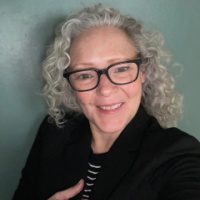
Christine Chidoub is a supply chain leader with over 25 years’ experience at Ralph Lauren, with expertise in inventory optimization and a reputation for managing strategic initiatives over the line. As a fact-based decision maker she’s known as a stabilizing force, especially during times of growth and disruption. Connect with Christine on LinkedIn.
